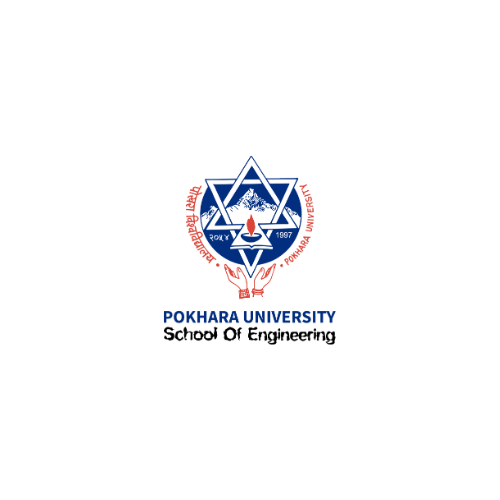Clean Energy and Accessible Mobility for Enhancing Public Transport for Resilient Pokhara
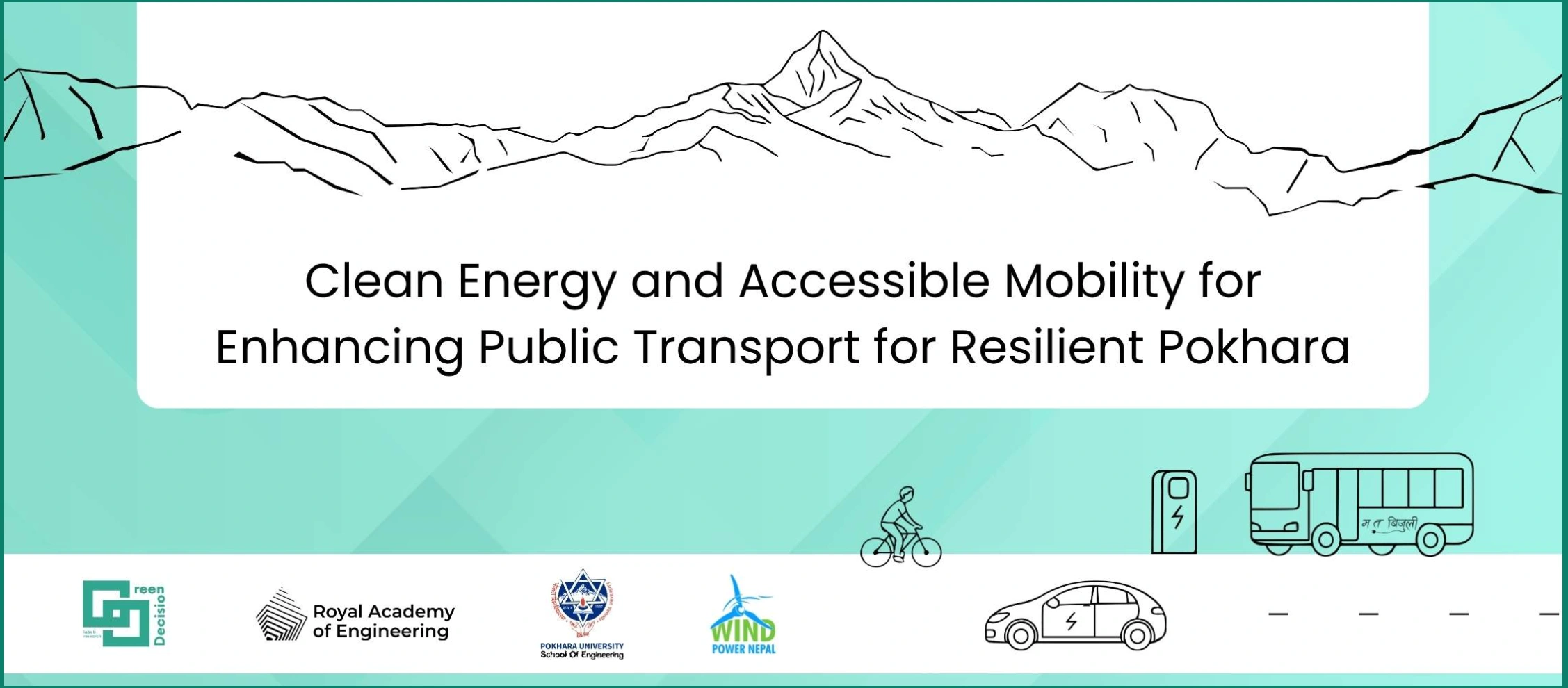
The workshop on Clean Energy and Accessible Mobility for Enhancing Public Transport for Resilient Pokhara marks the third in a national series organized under the RAE-supported research project “Designing Resilient Urban Mobility Systems for Climate Adaptation.” Following successful engagements in Kathmandu and Birgunj, the Pokhara edition turned the spotlight on tourism-driven mobility and clean energy transitions in Nepal’s iconic lake city.
Pokhara’s rapid growth, as both a residential and tourism hub has intensified mobility challenges. Rising vehicle numbers, traffic congestion, and pressure on public infrastructure are shaping the city’s urban experience. At the same time, growing interest in clean, low-emission, and inclusive transport systems offers new possibilities for transformation.
The Pokhara workshop convened local government leaders, experts, and community representatives to discuss the future of mobility in a city that embodies both environmental sensitivity and economic opportunity. The goal was to co-create mobility solutions that advance climate resilience, strengthen accessibility, and promote sustainable tourism.
Key focus areas of Workshop
Public electric transport for city-to-highway connectivity
Climate-smart tourism mobility and accessibility
Parking and traffic congestion in tourism hotspots
Opportunities and risks in EV infrastructure expansion (including EV charging)
Bicycles as last-mile connectivity options
Circularity in urban transport – such as using low-value plastics in roads, recycling old tyres, and managing EV batteries
Workshop Objectives
The workshop was designed to foster a multi-stakeholder dialogue on Pokhara’s evolving mobility landscape and to identify practical pathways toward clean, resilient, and inclusive transport systems. The specific objectives were to:
- Understand Local Transport Needs in a Tourism-Centric Context: Examine how tourism and urban growth shape Pokhara’s mobility challenges and identify opportunities for clean energy solutions.
- Assess Public EV Systems and Shared Mobility Potential: Explore how city buses, airport shuttles, taxis, and last-mile services can transition to electric or hybrid models.
- Map Institutional and Infrastructure Gaps: Identify key policy, planning, and infrastructure bottlenecks, and propose interventions to address them.
- Incorporate Environmental and Accessibility Considerations: Integrate climate adaptation, nature-based solutions, and equitable access—especially for marginalized groups and vulnerable users.
- Promote Circularity and Innovation in Transport: Discuss approaches for EV battery recycling, tyre reuse, and the use of low-value plastic to enhance road resilience.
- Foster Stakeholder Collaboration: Strengthen partnerships among public institutions, private innovators, and local communities to co-develop sustainable mobility solutions.
Few Glimpse from the Event Day
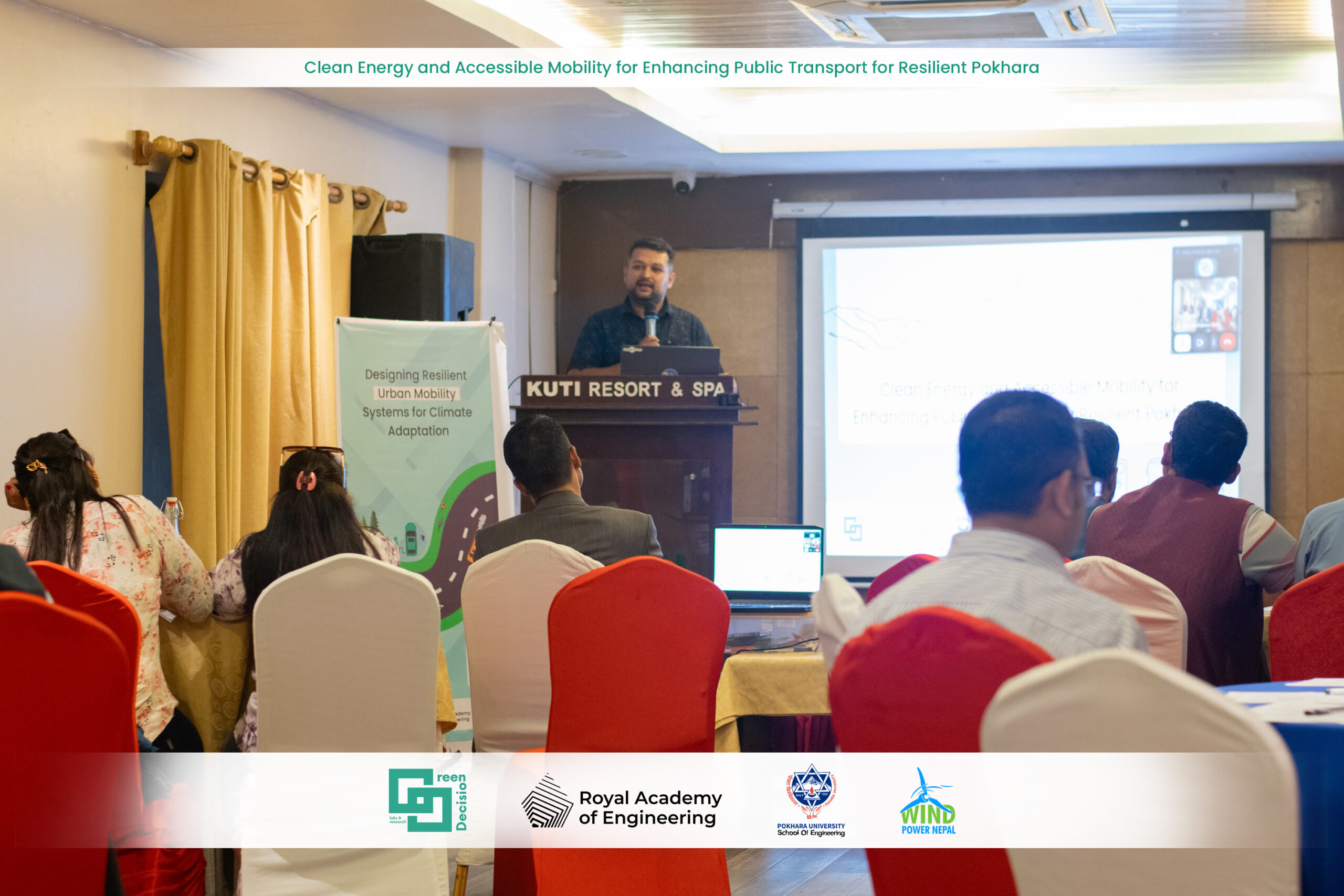
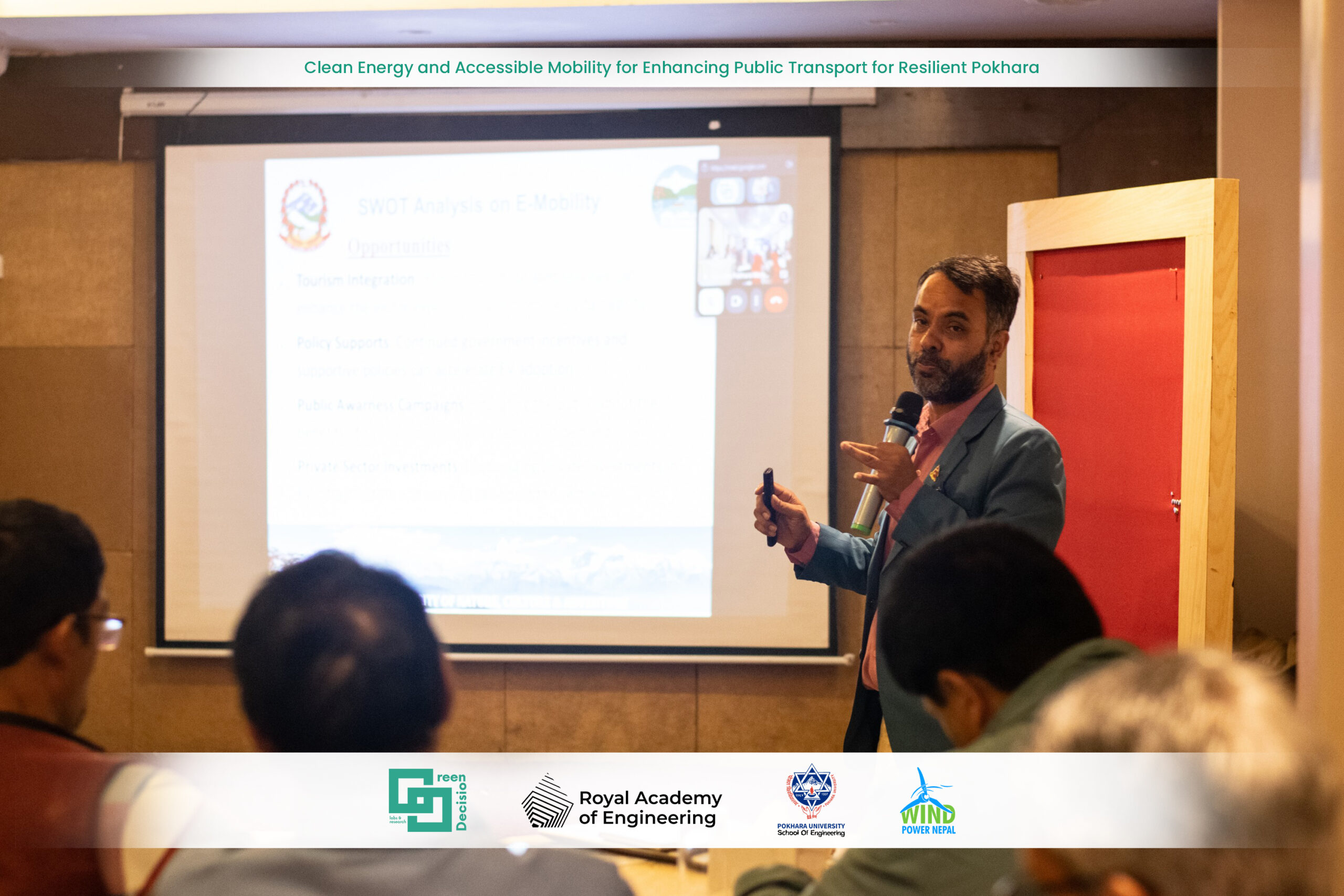
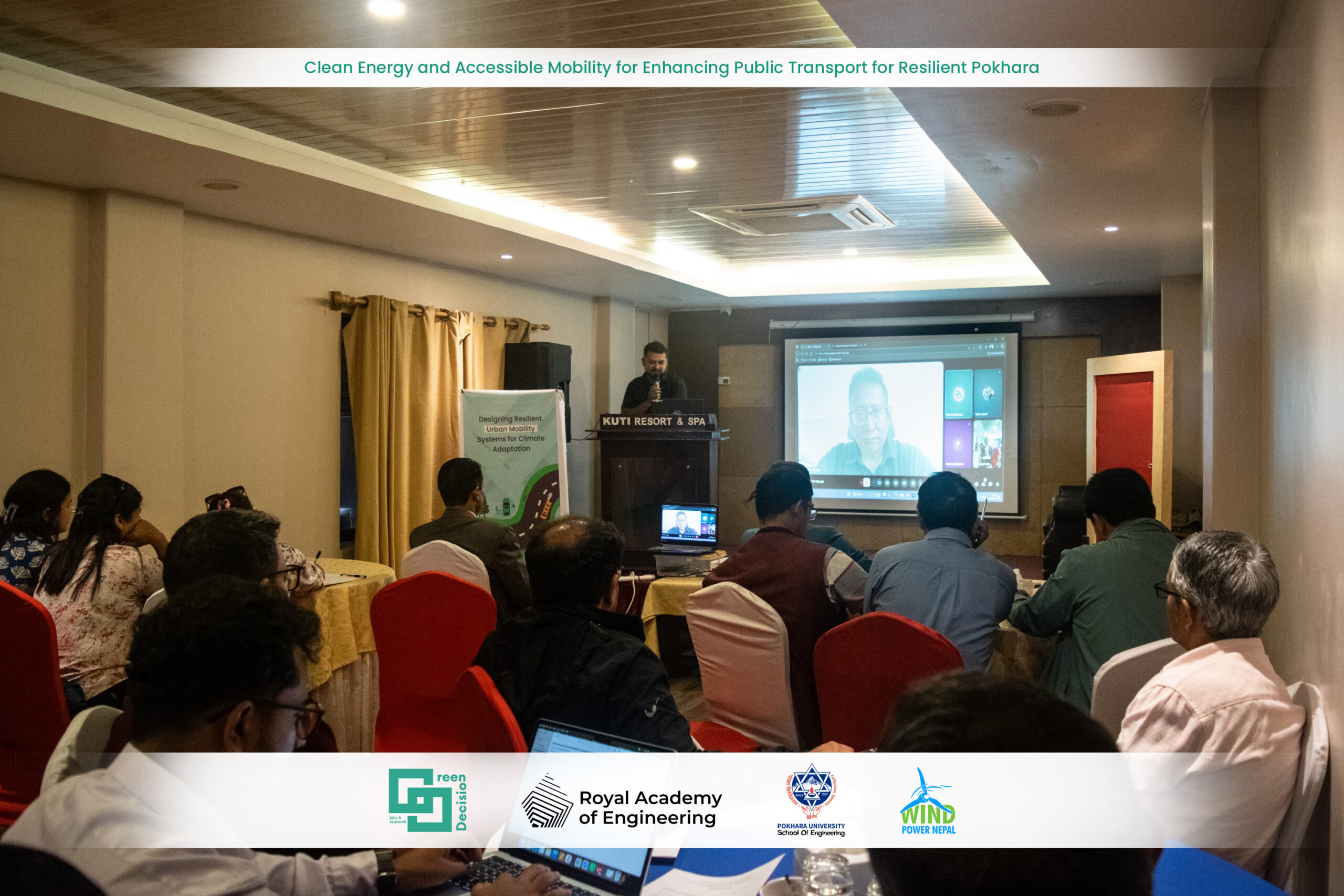
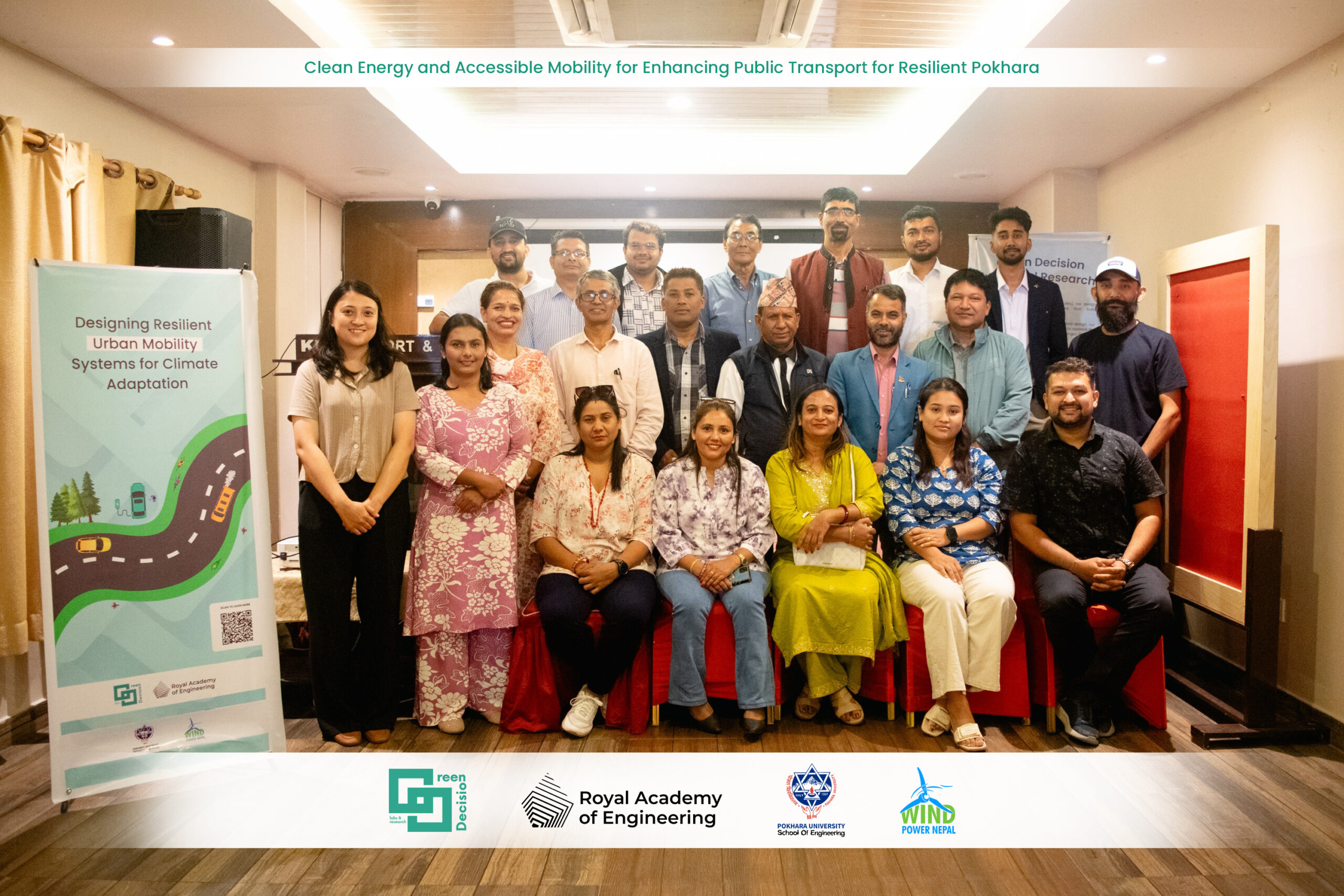
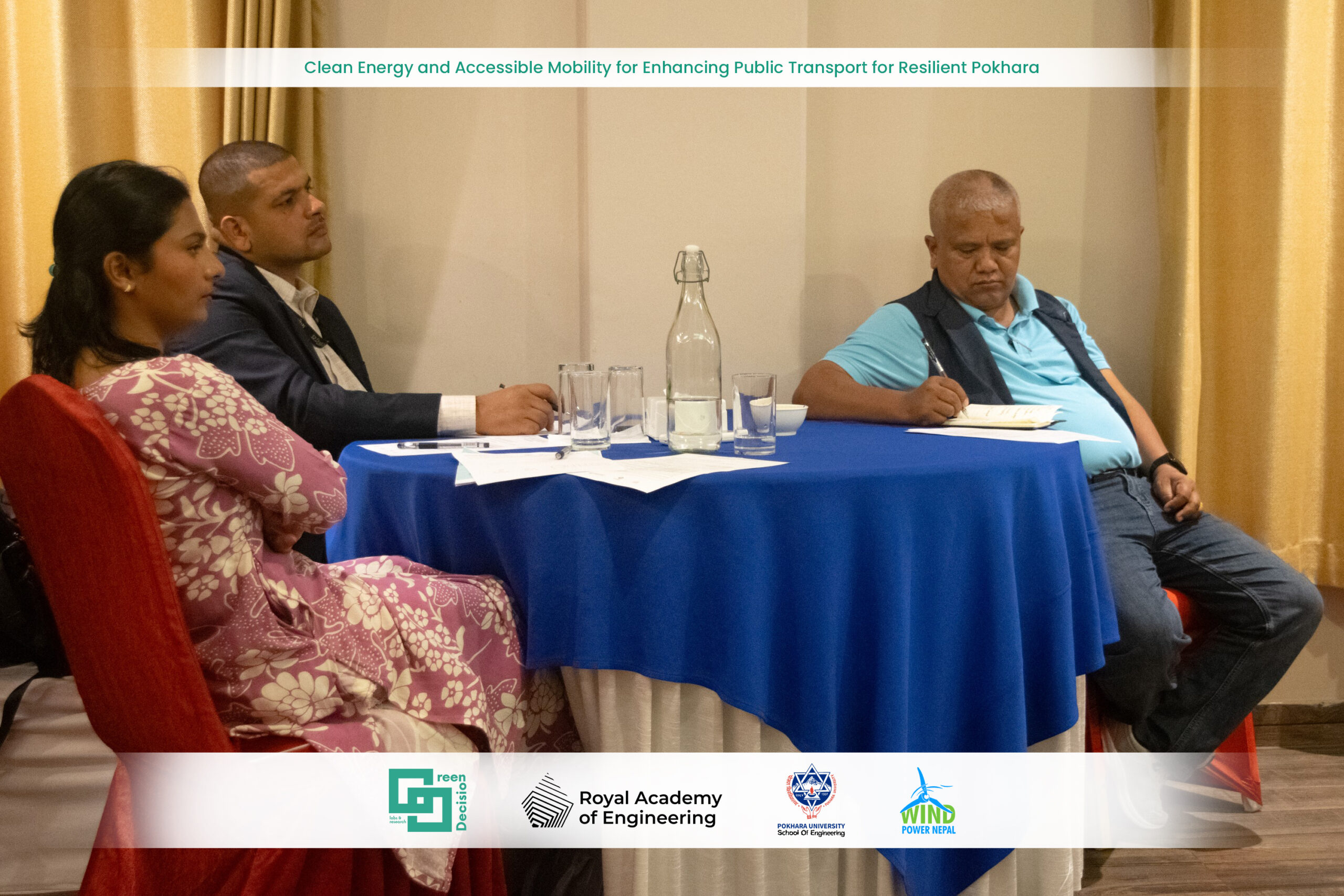
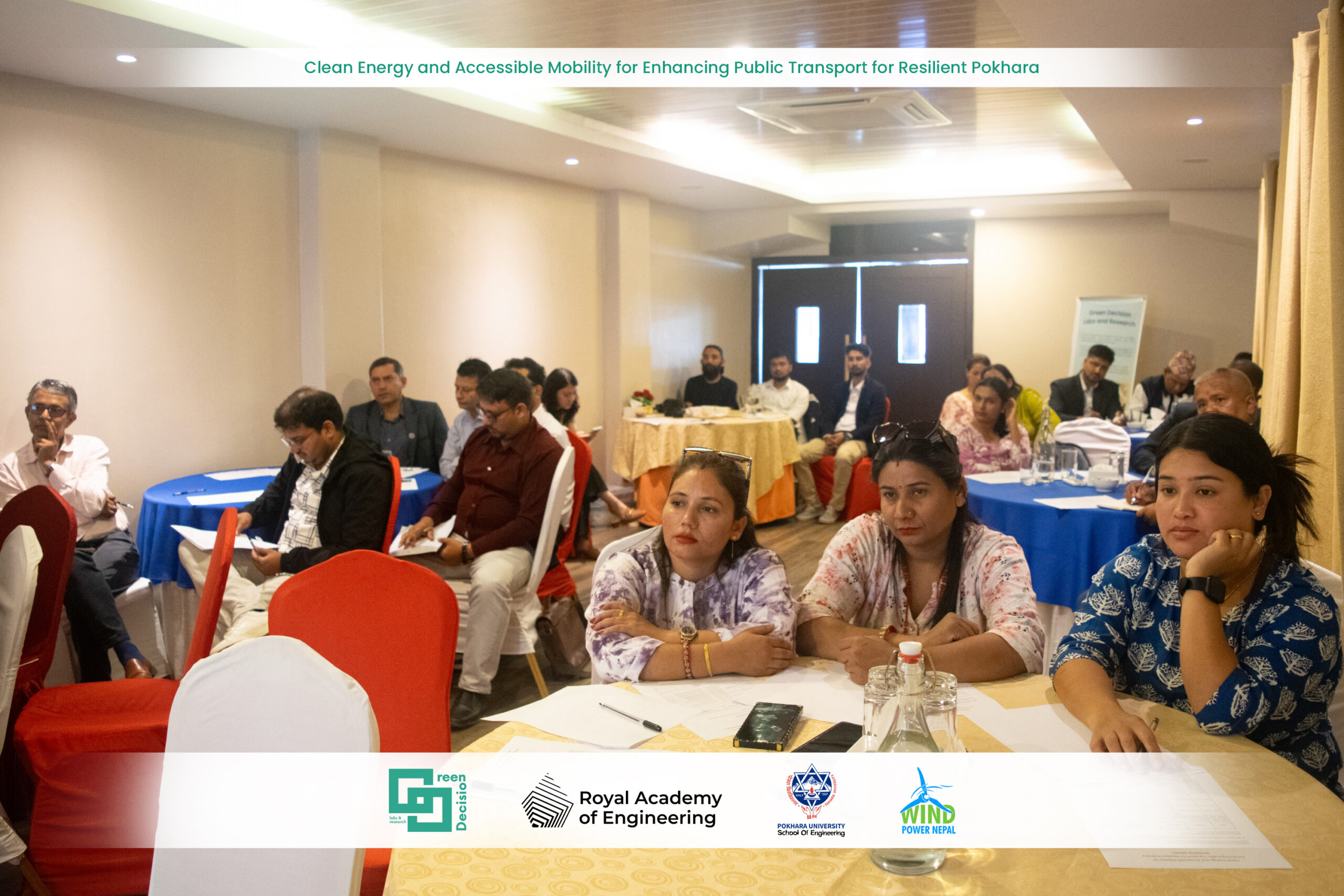
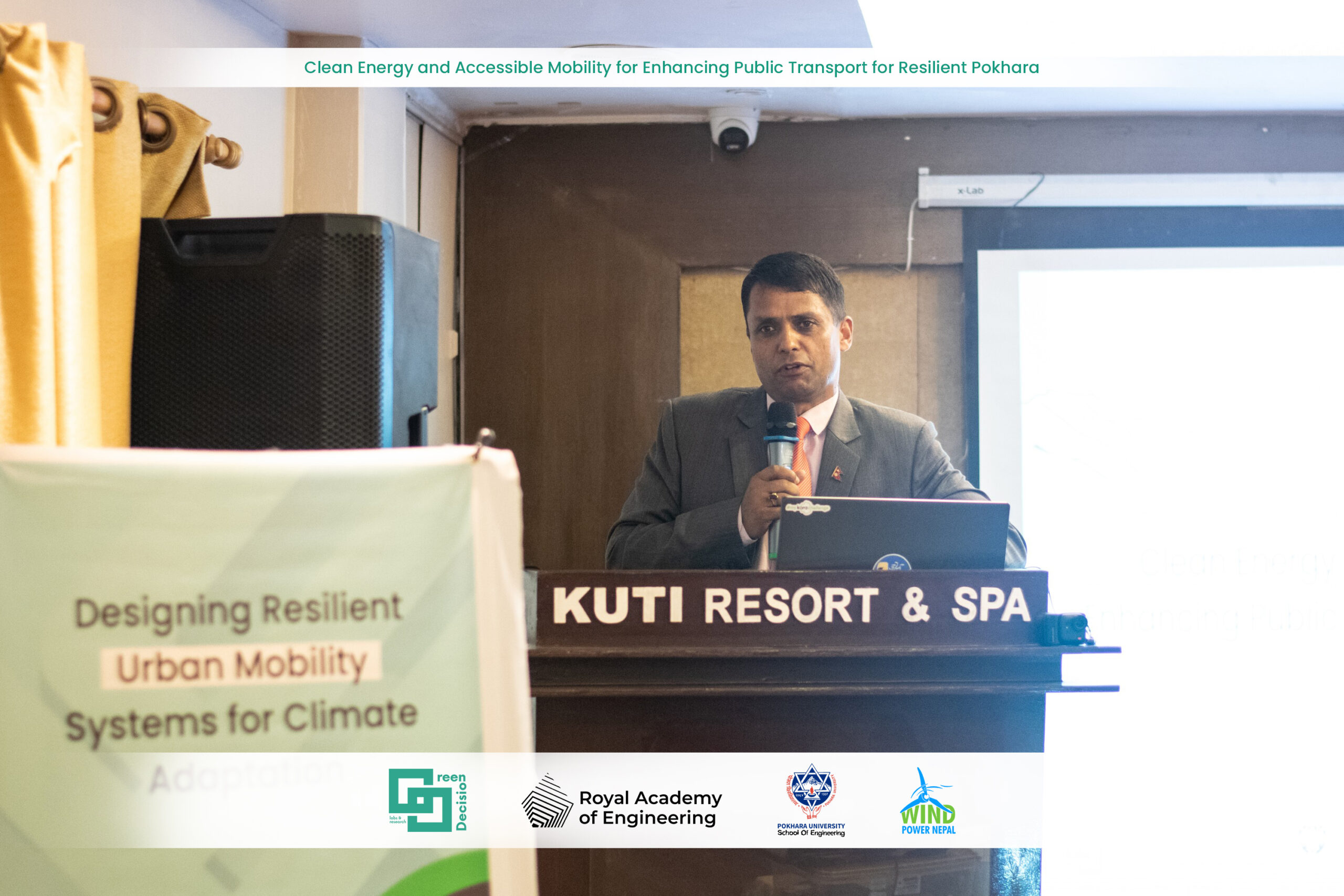
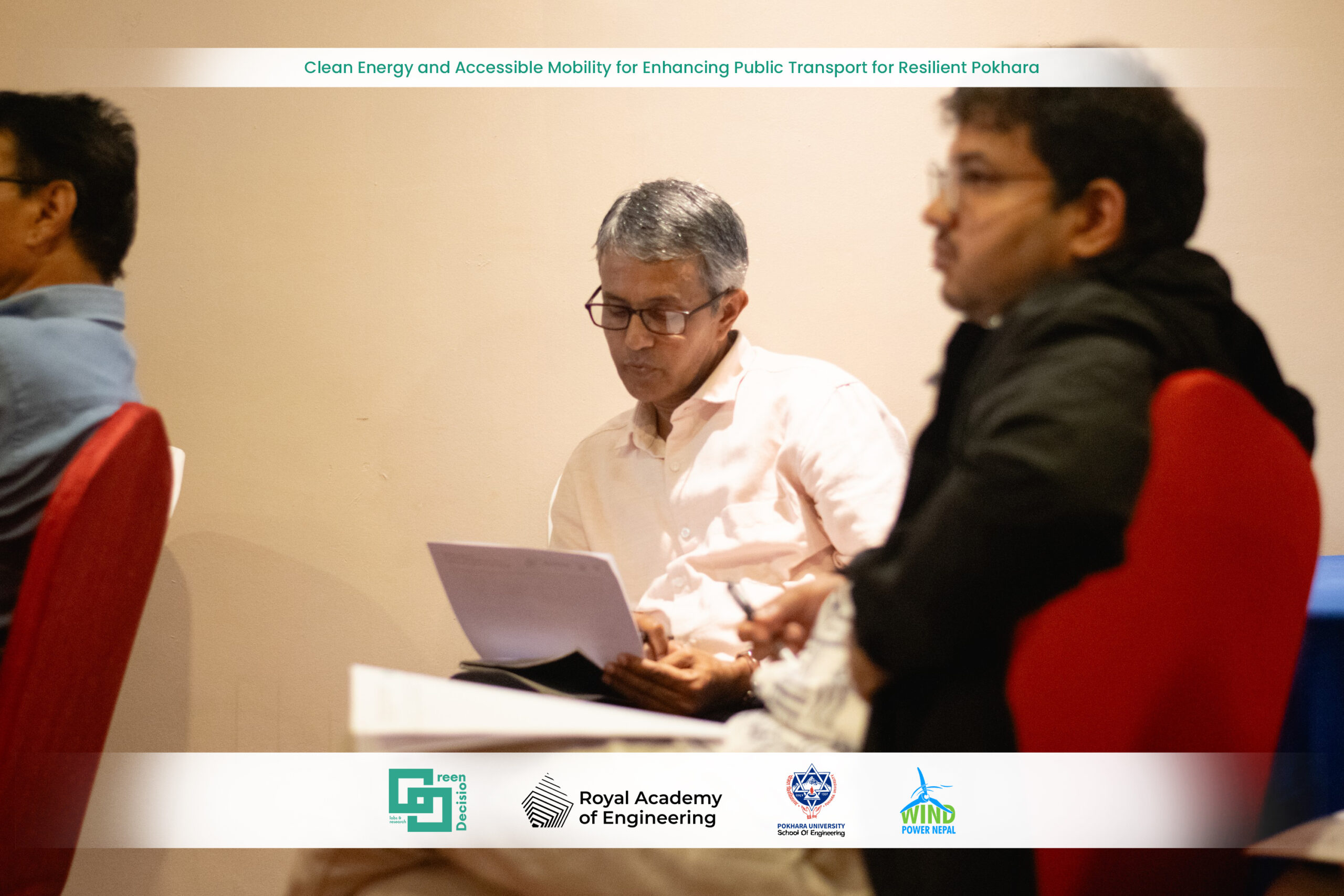
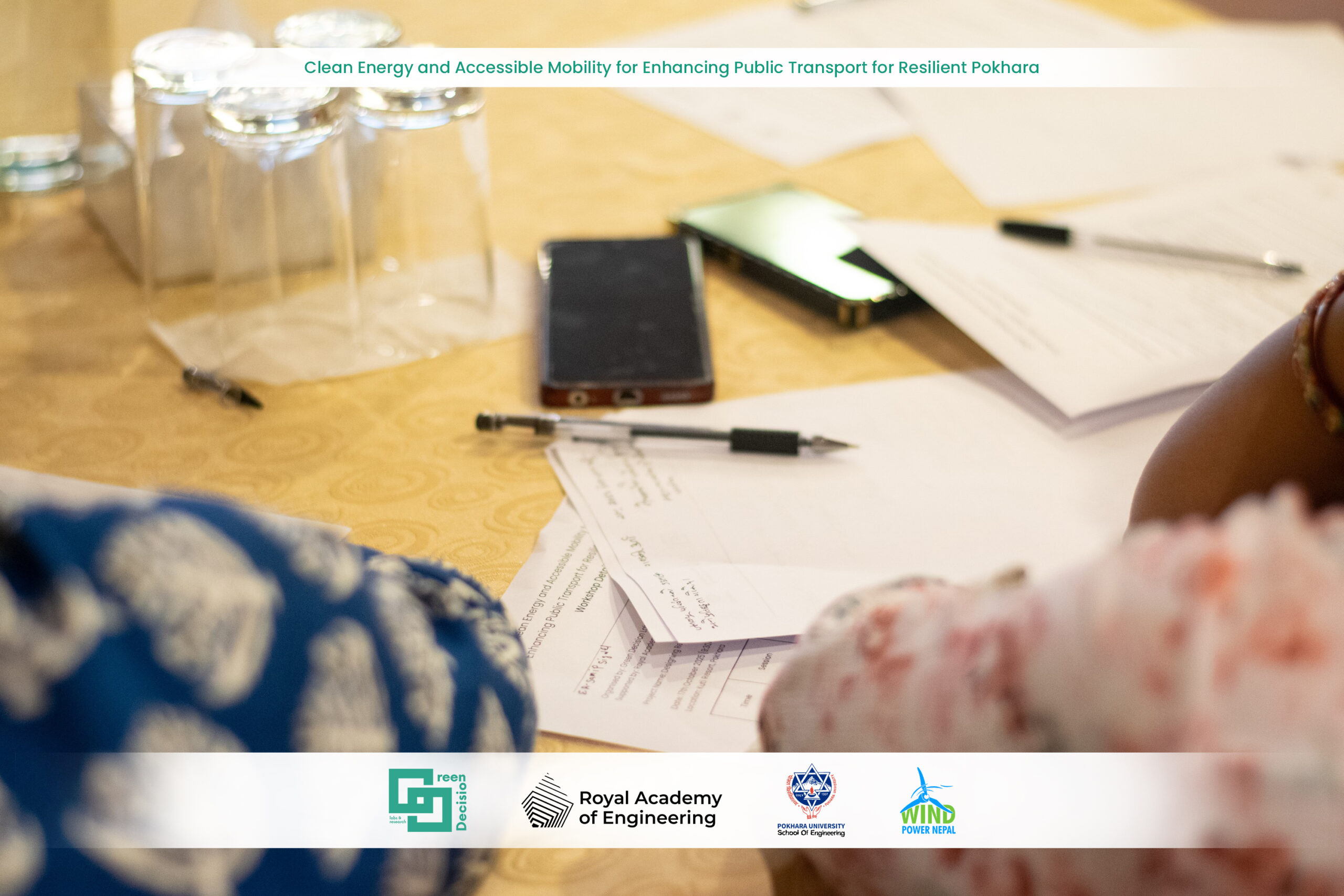
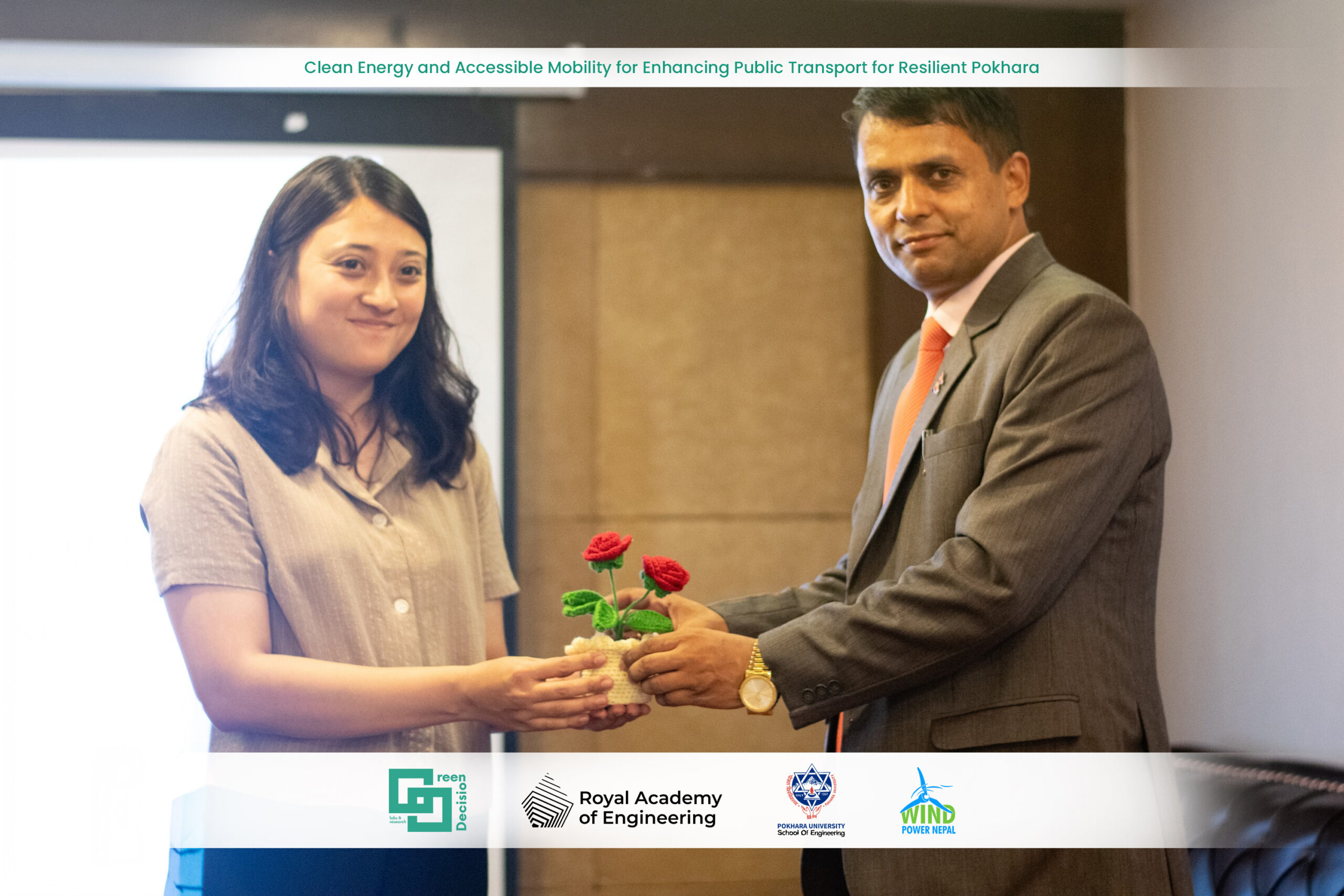
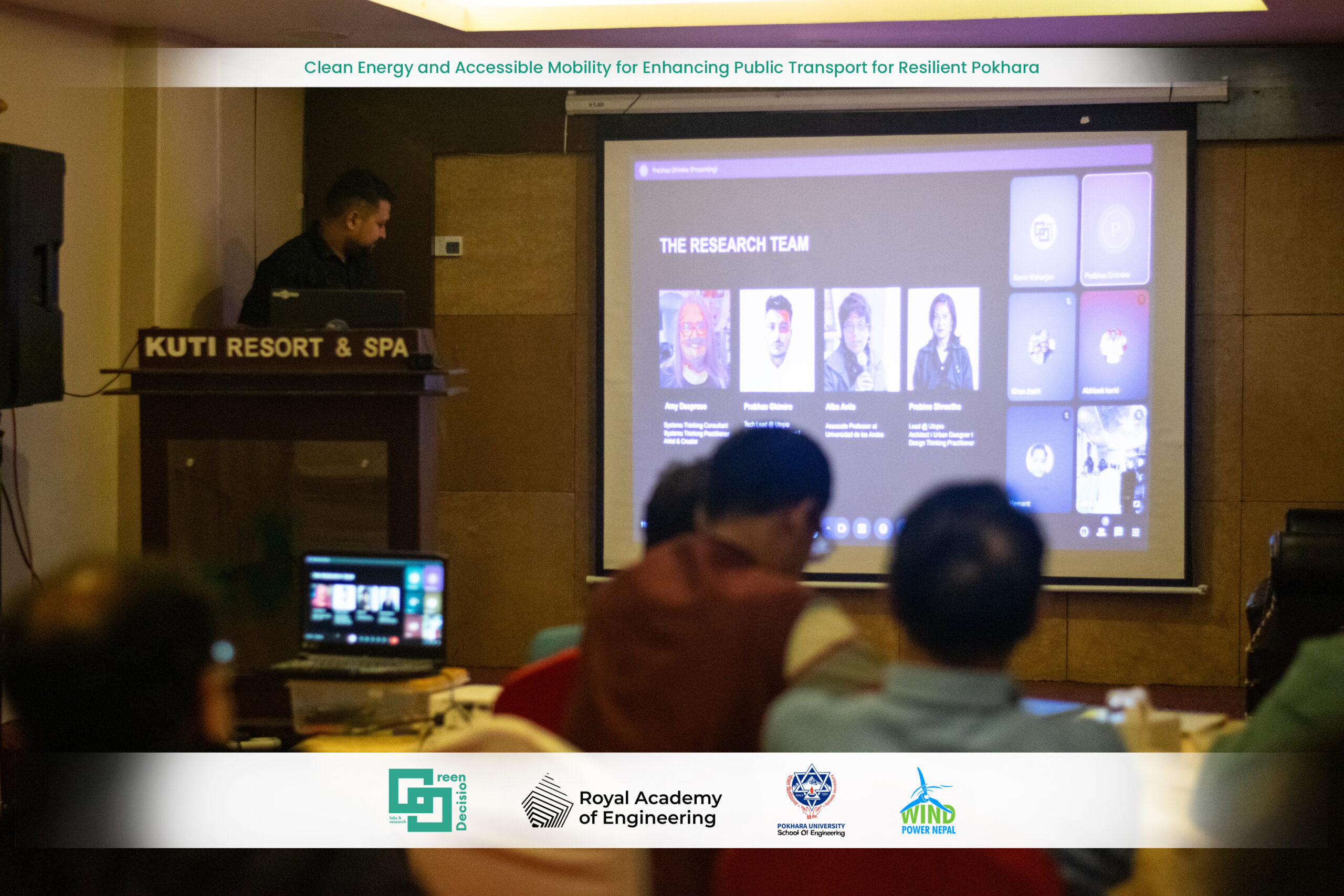
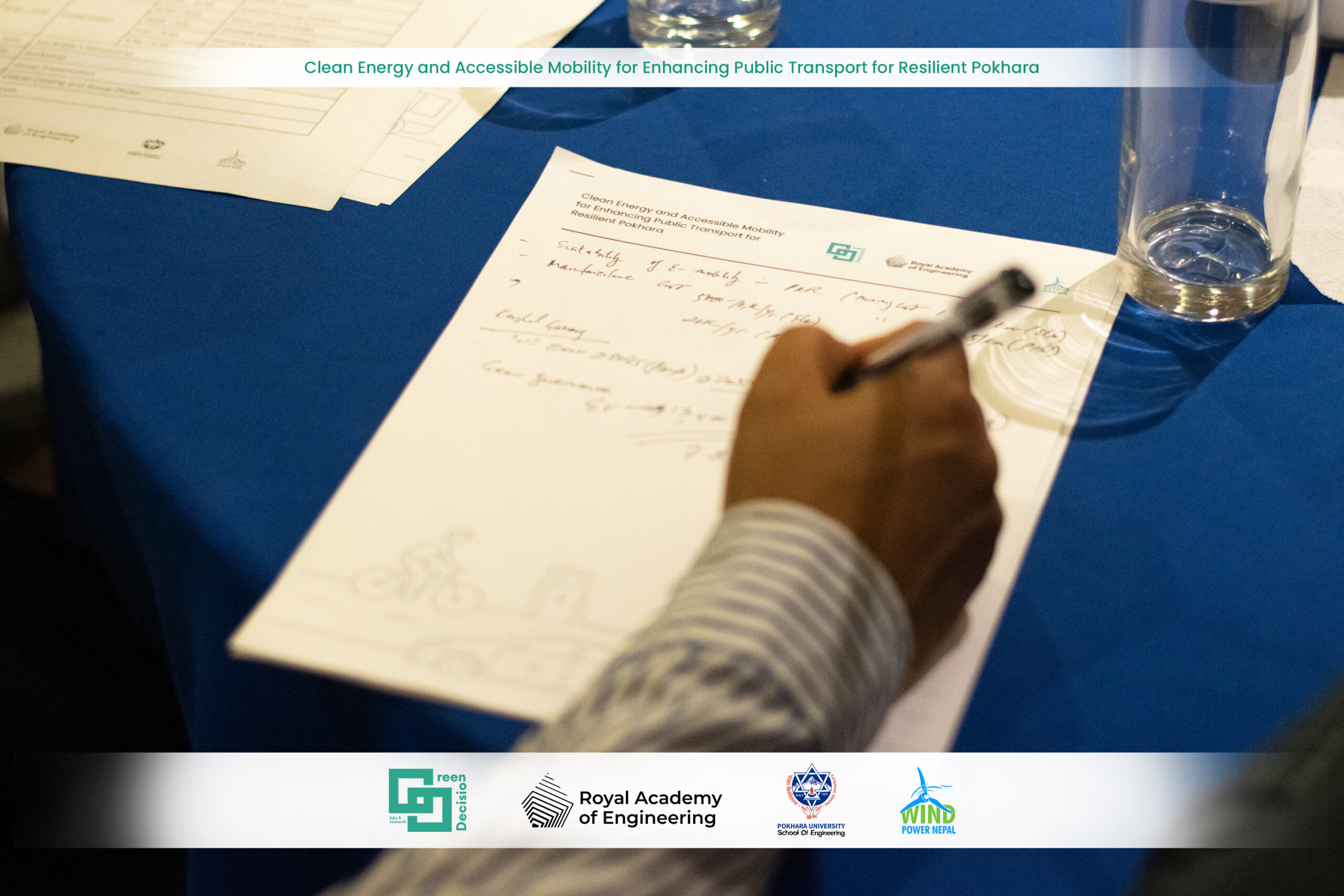
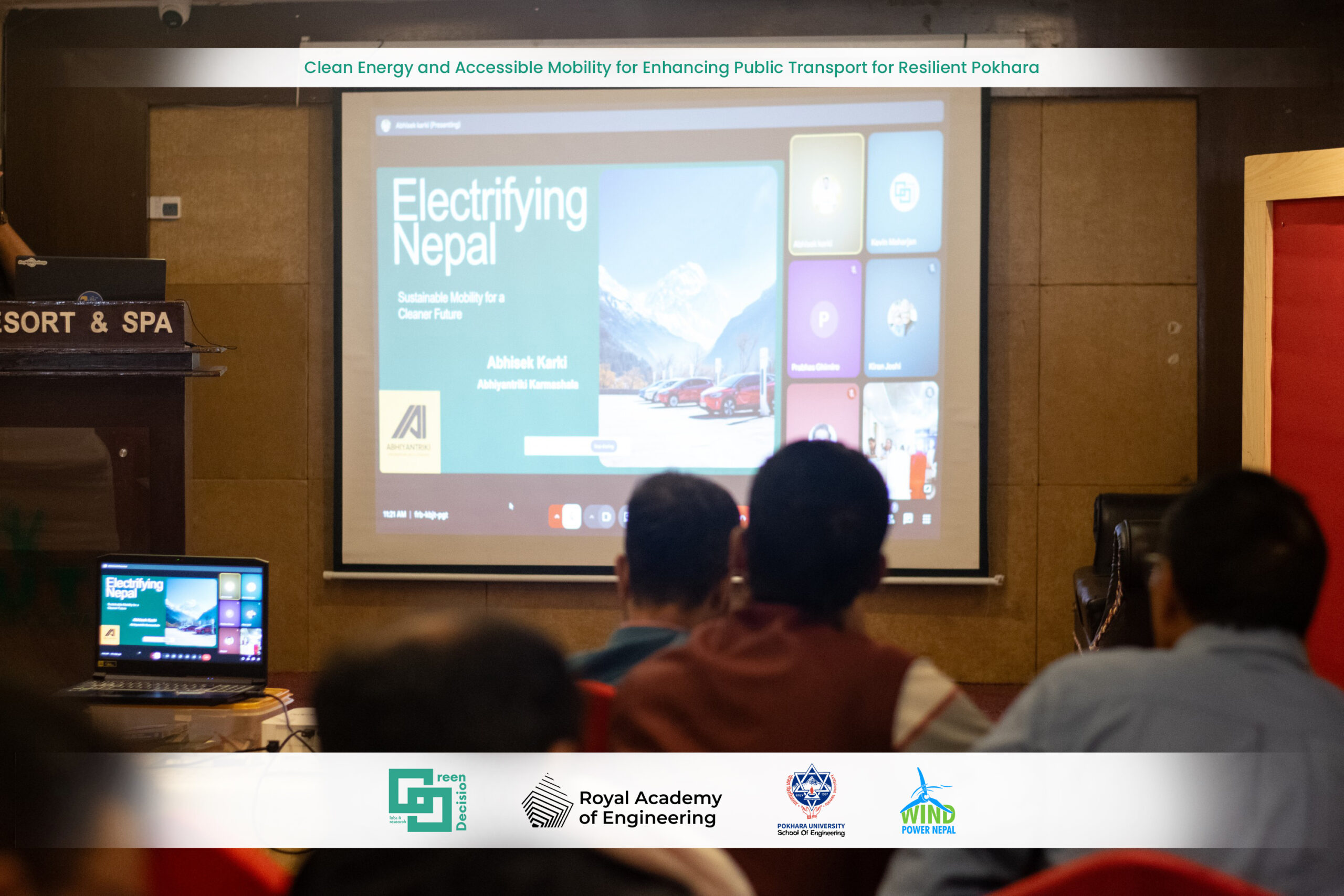
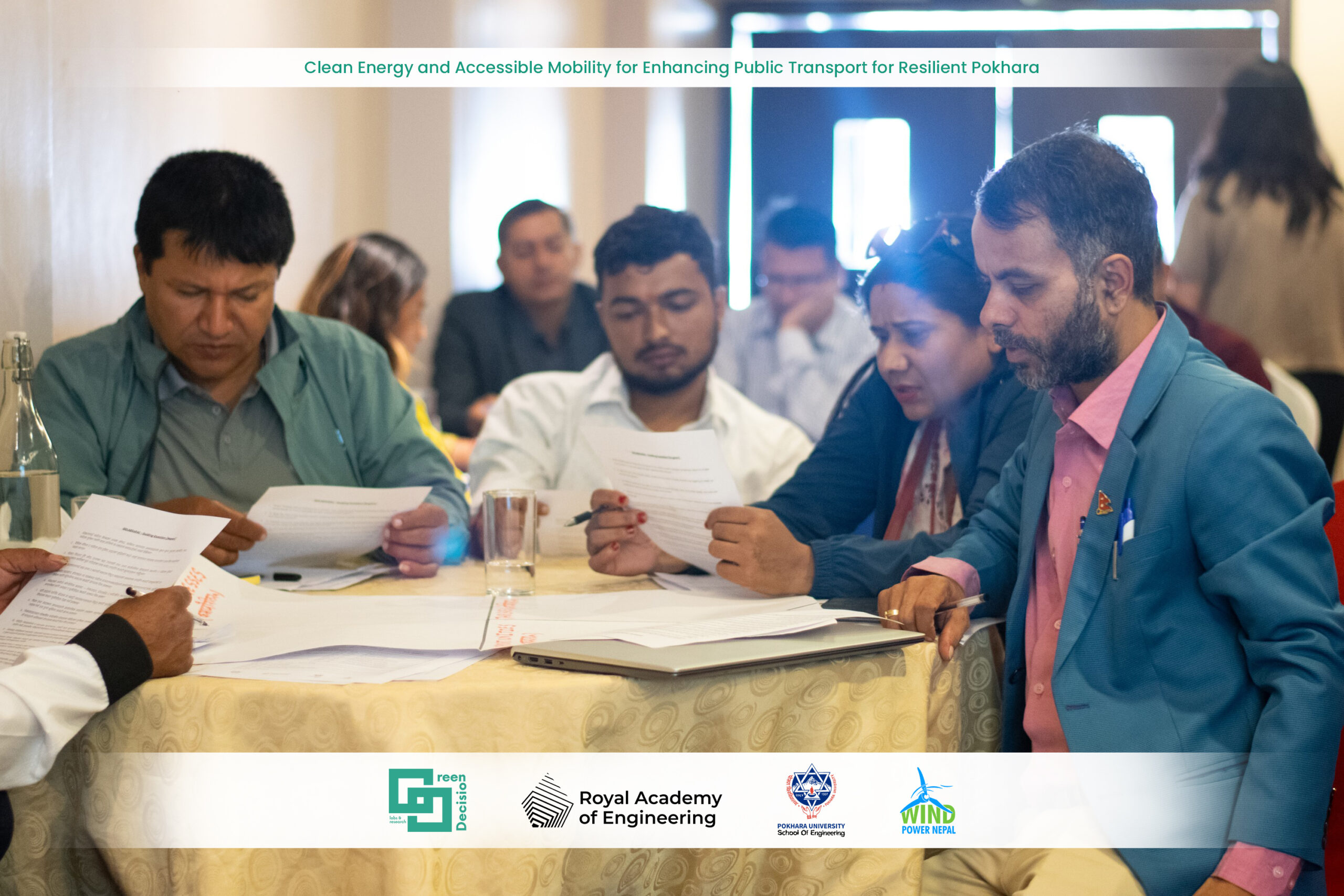
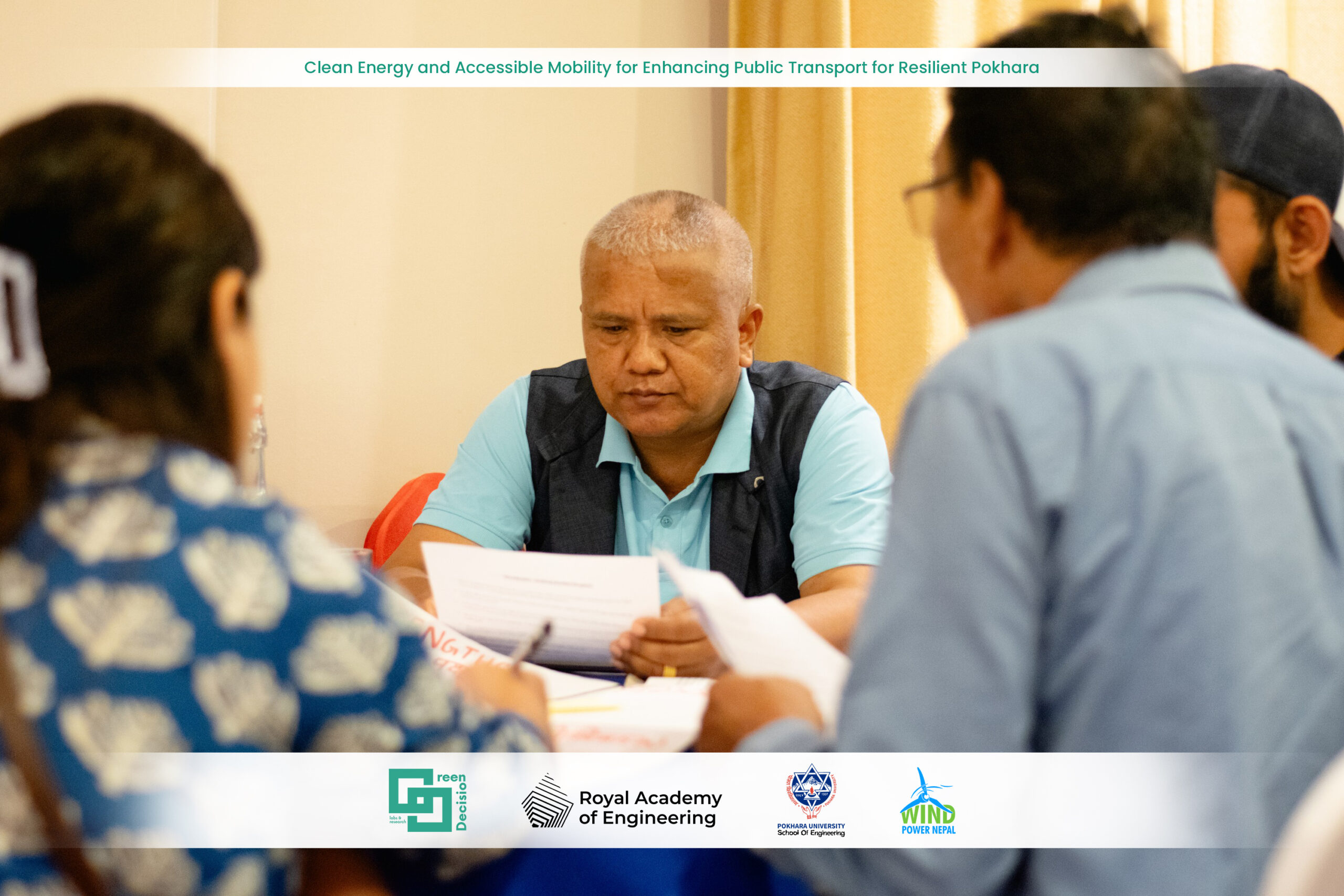
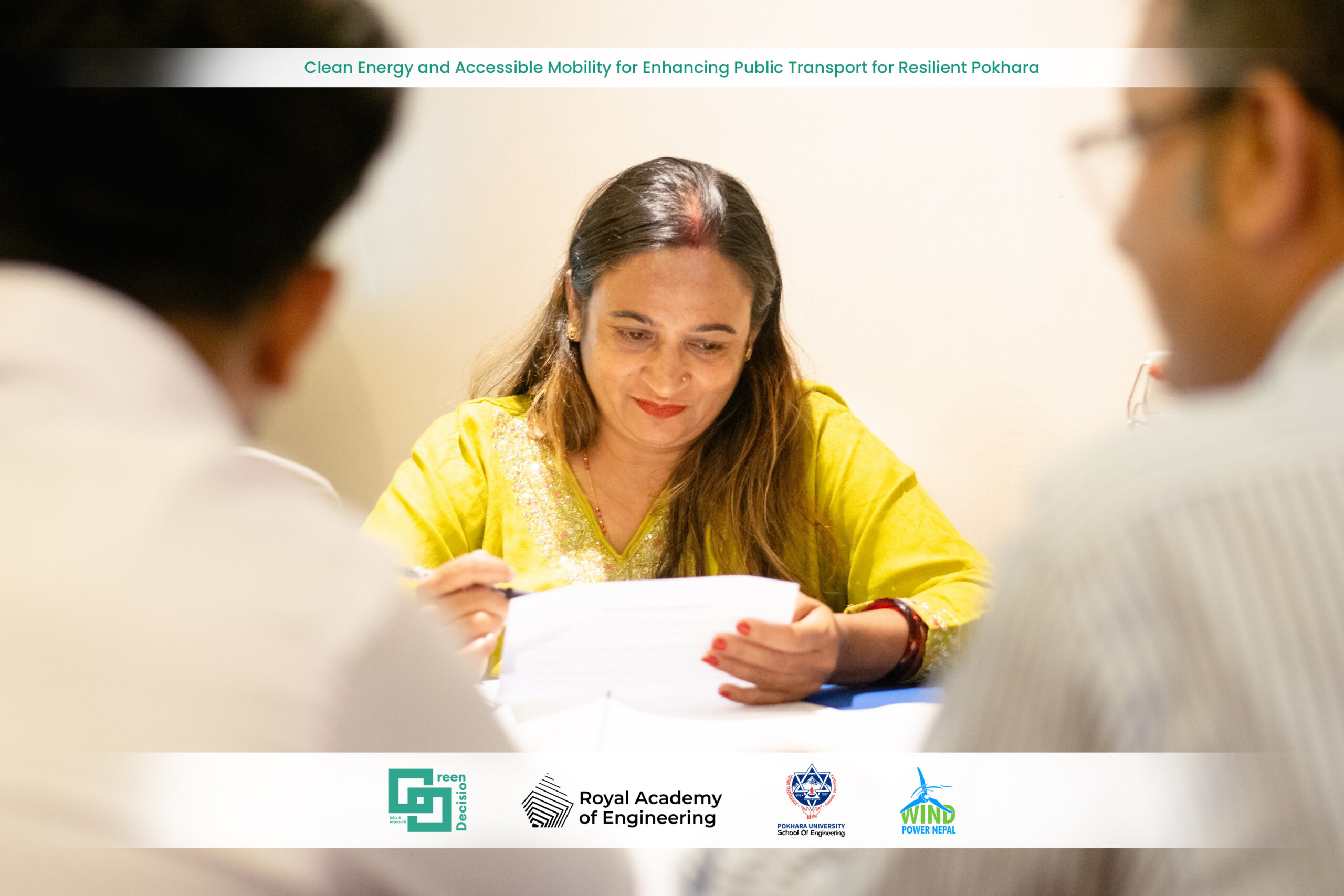
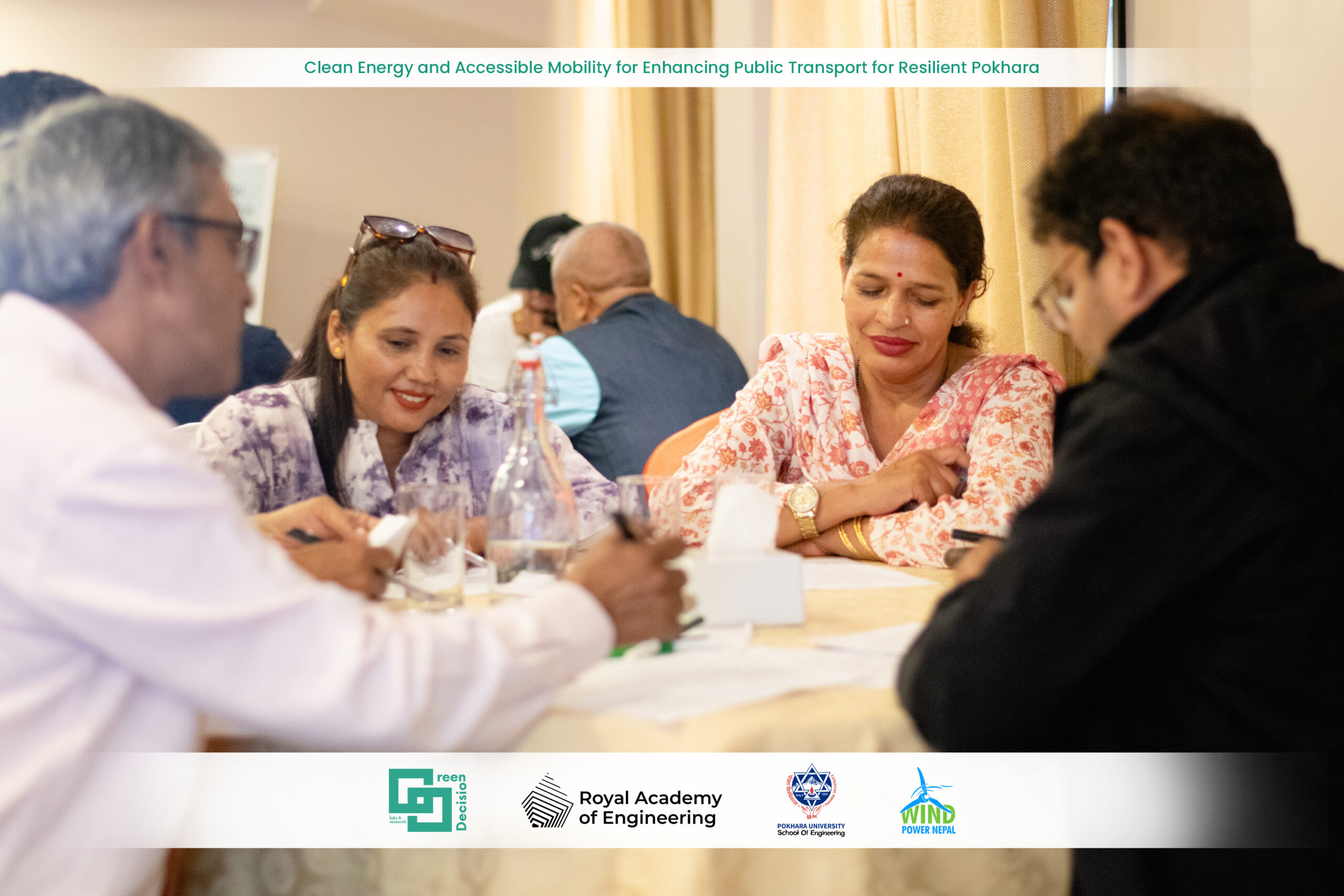
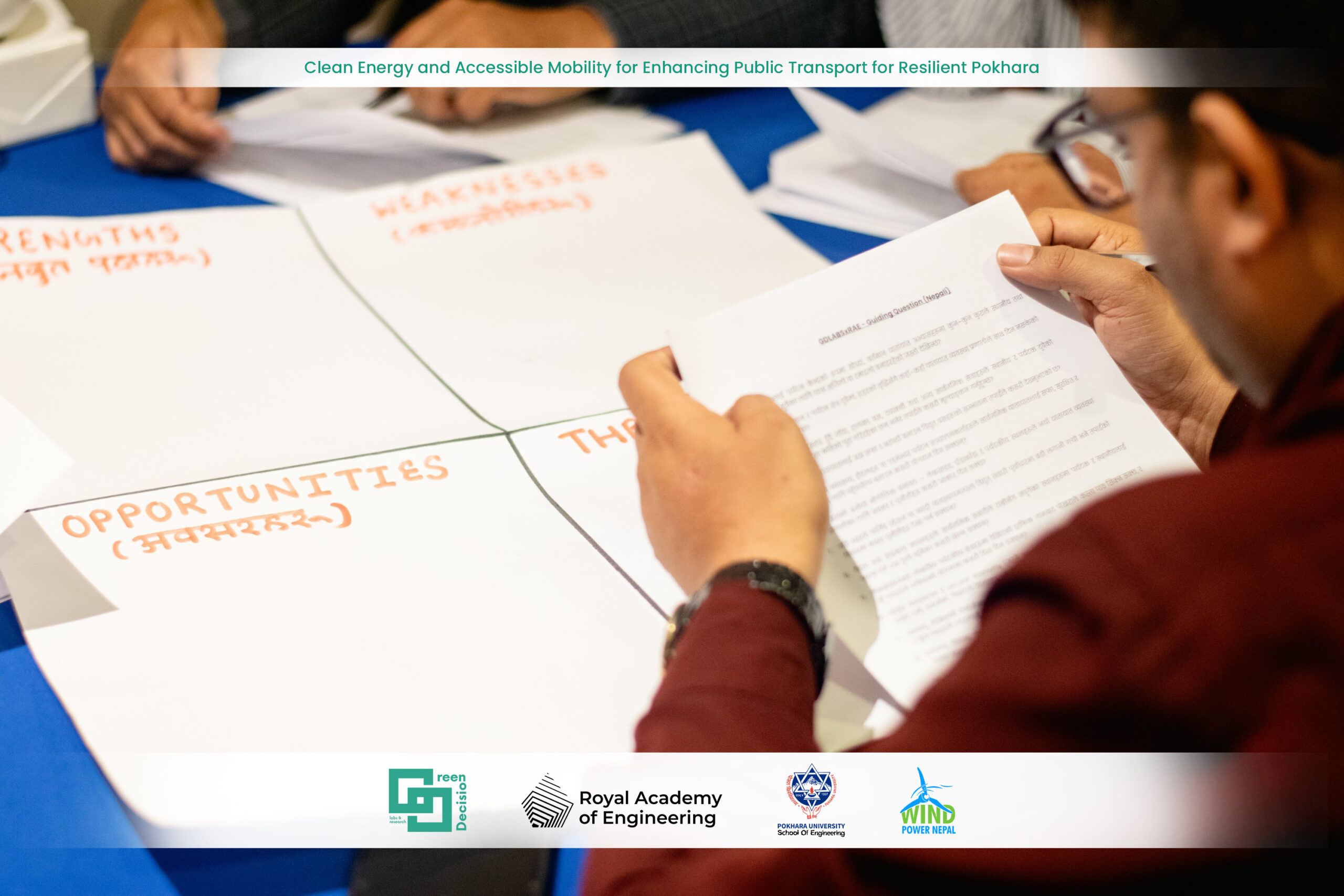
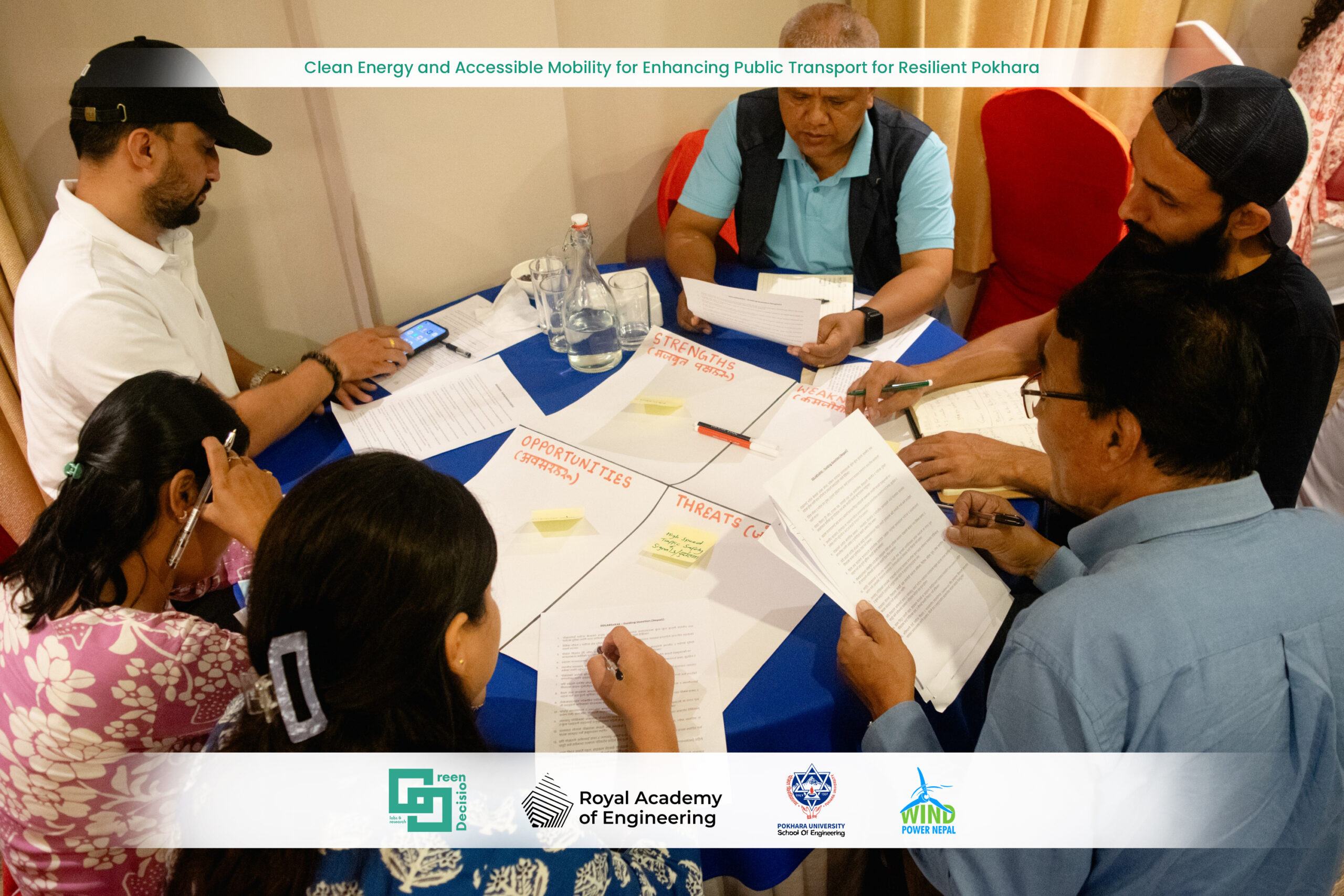
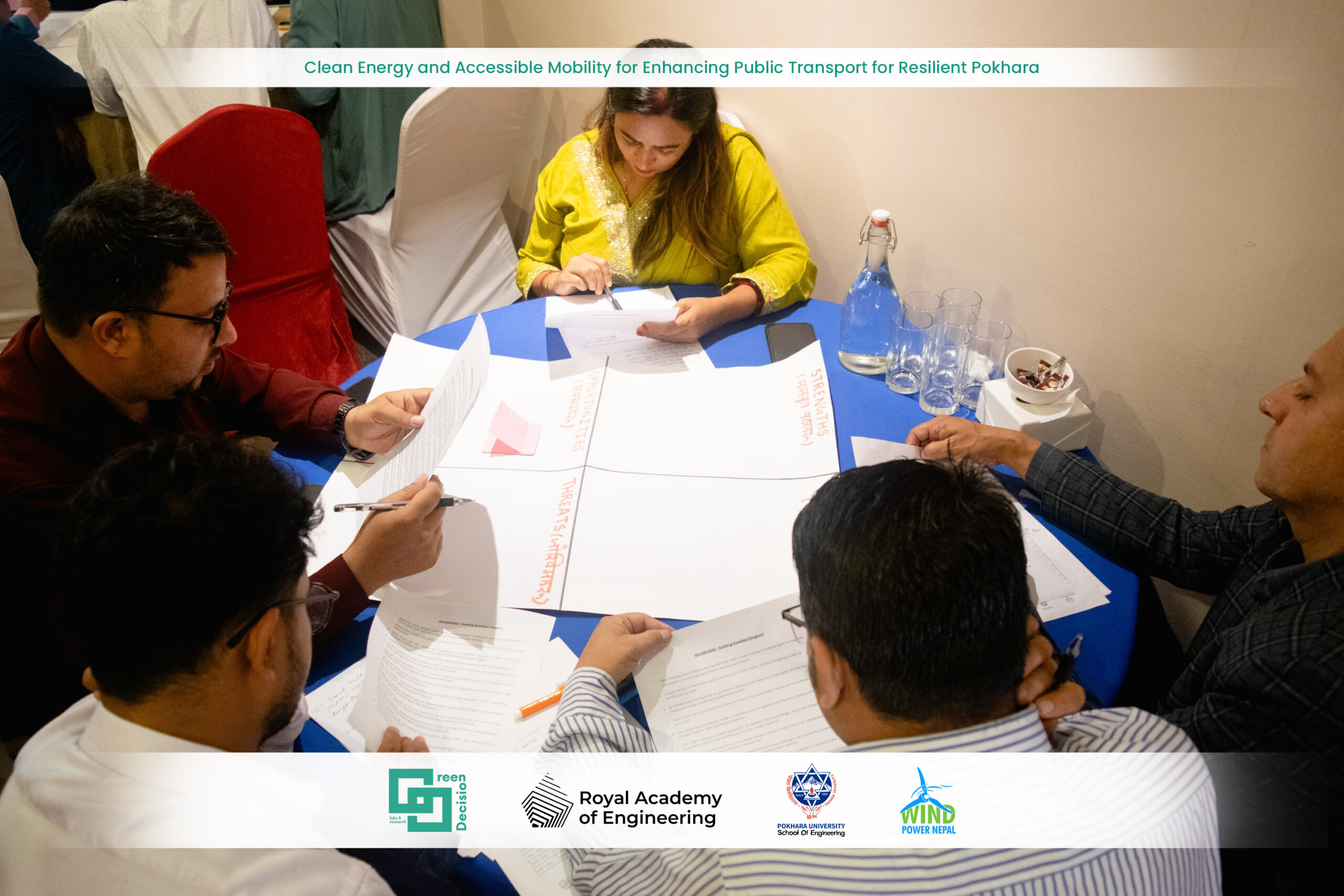
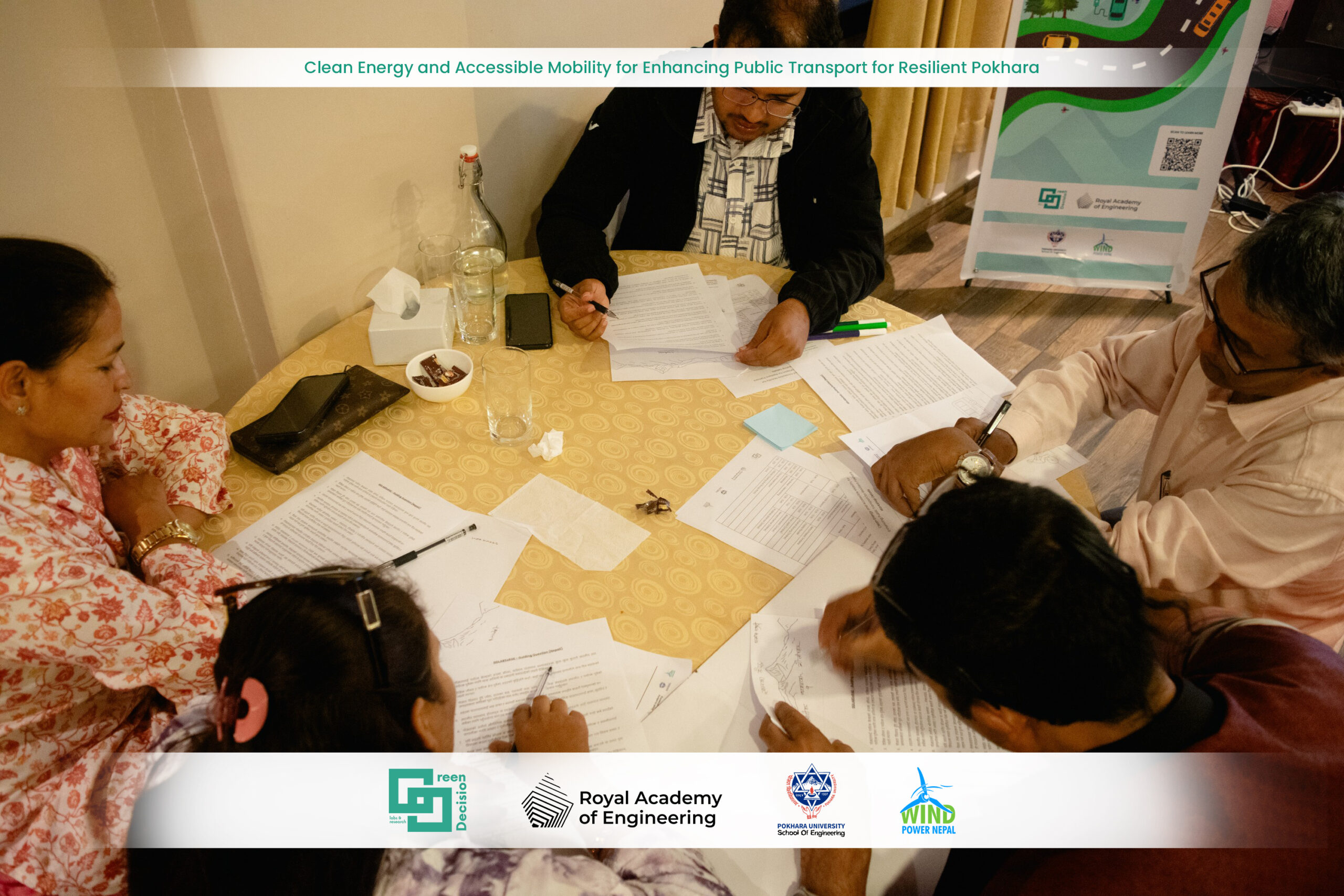
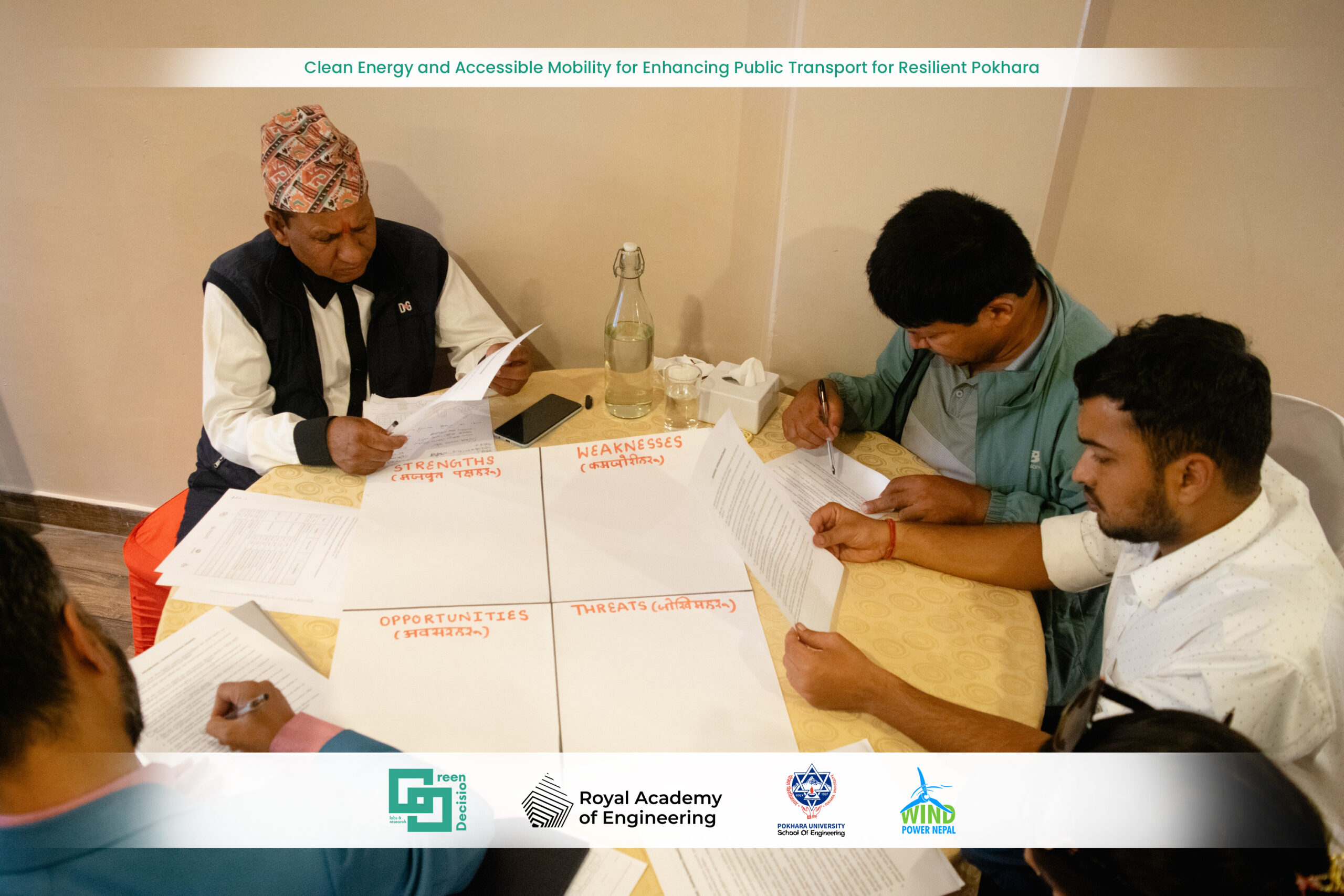
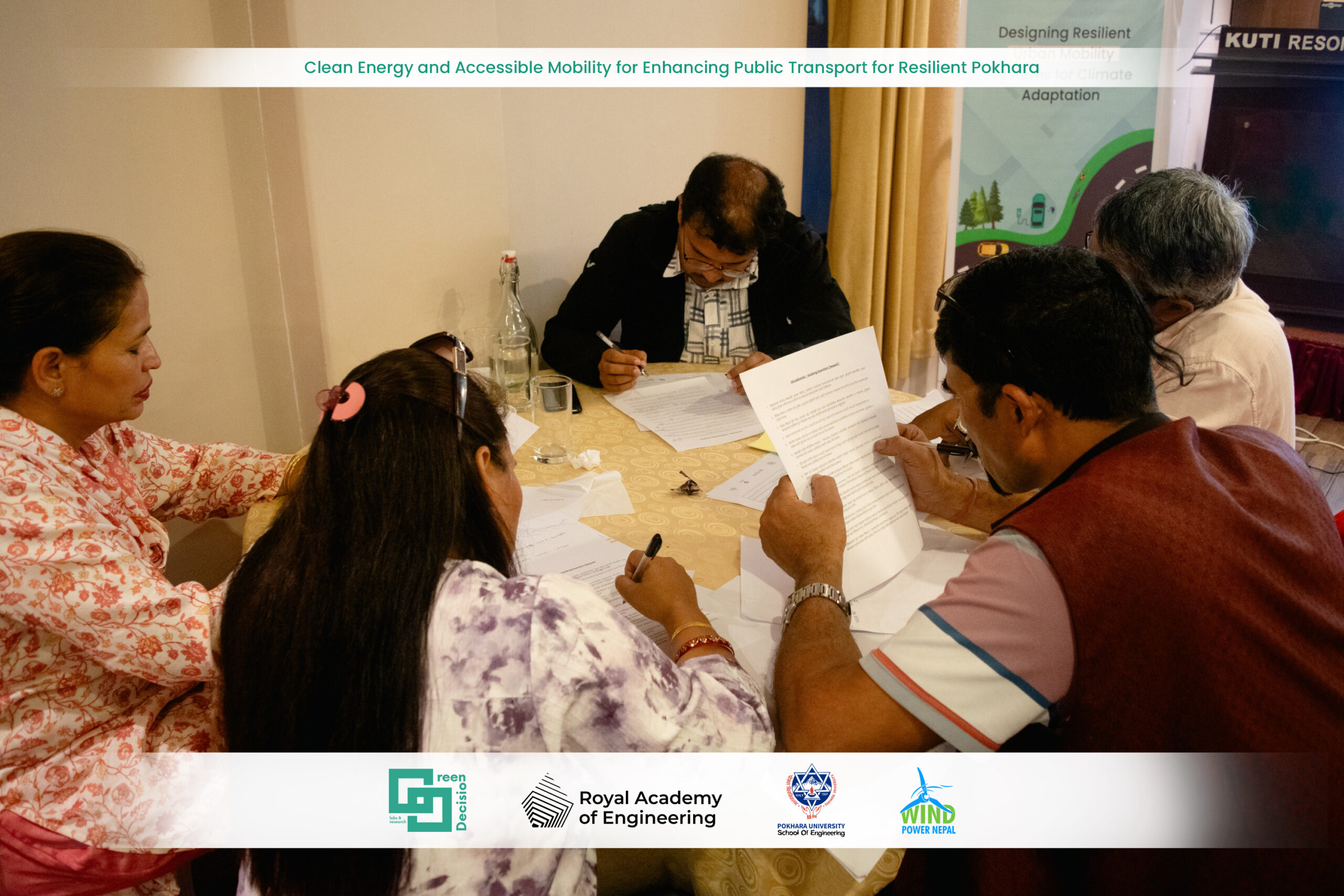
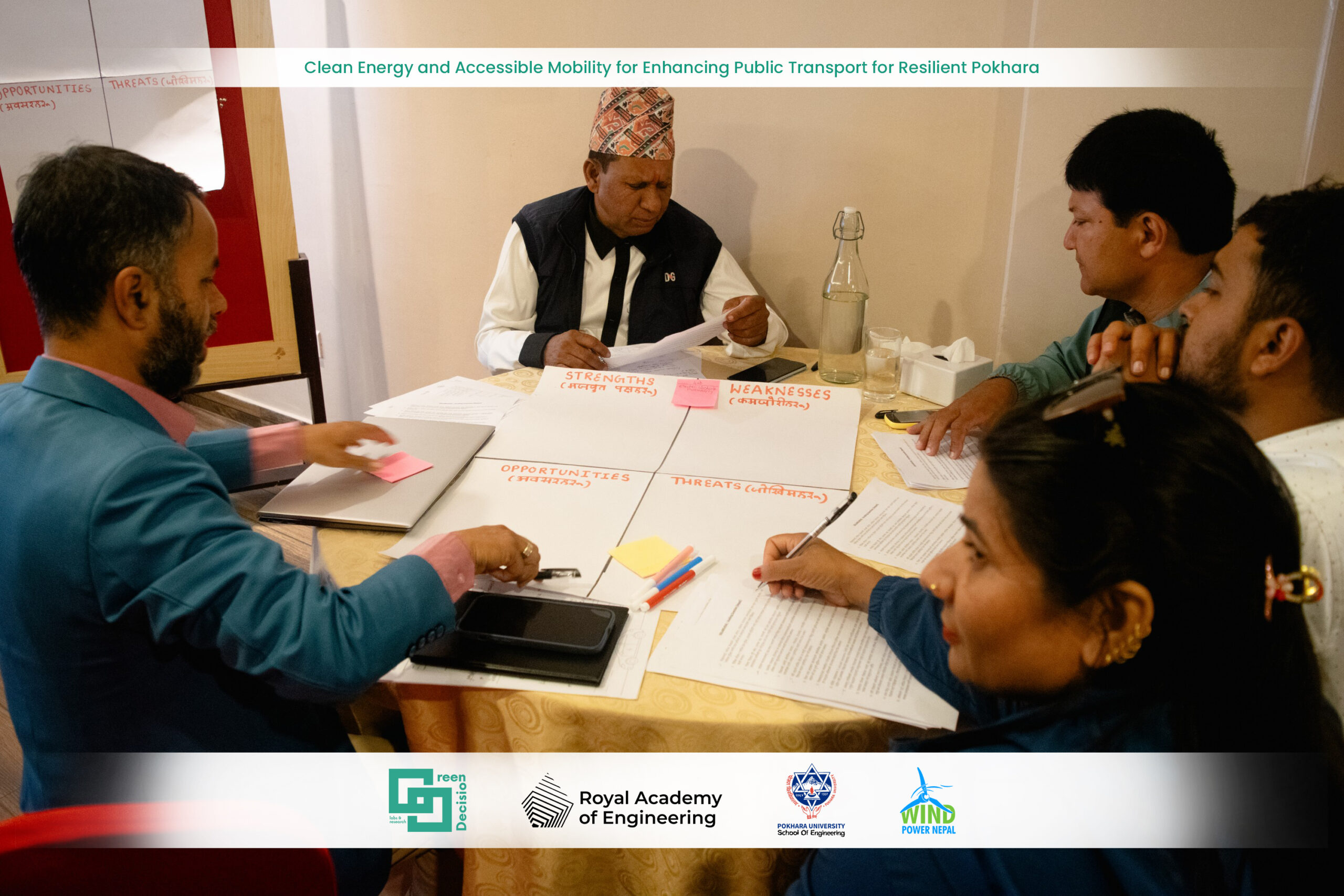
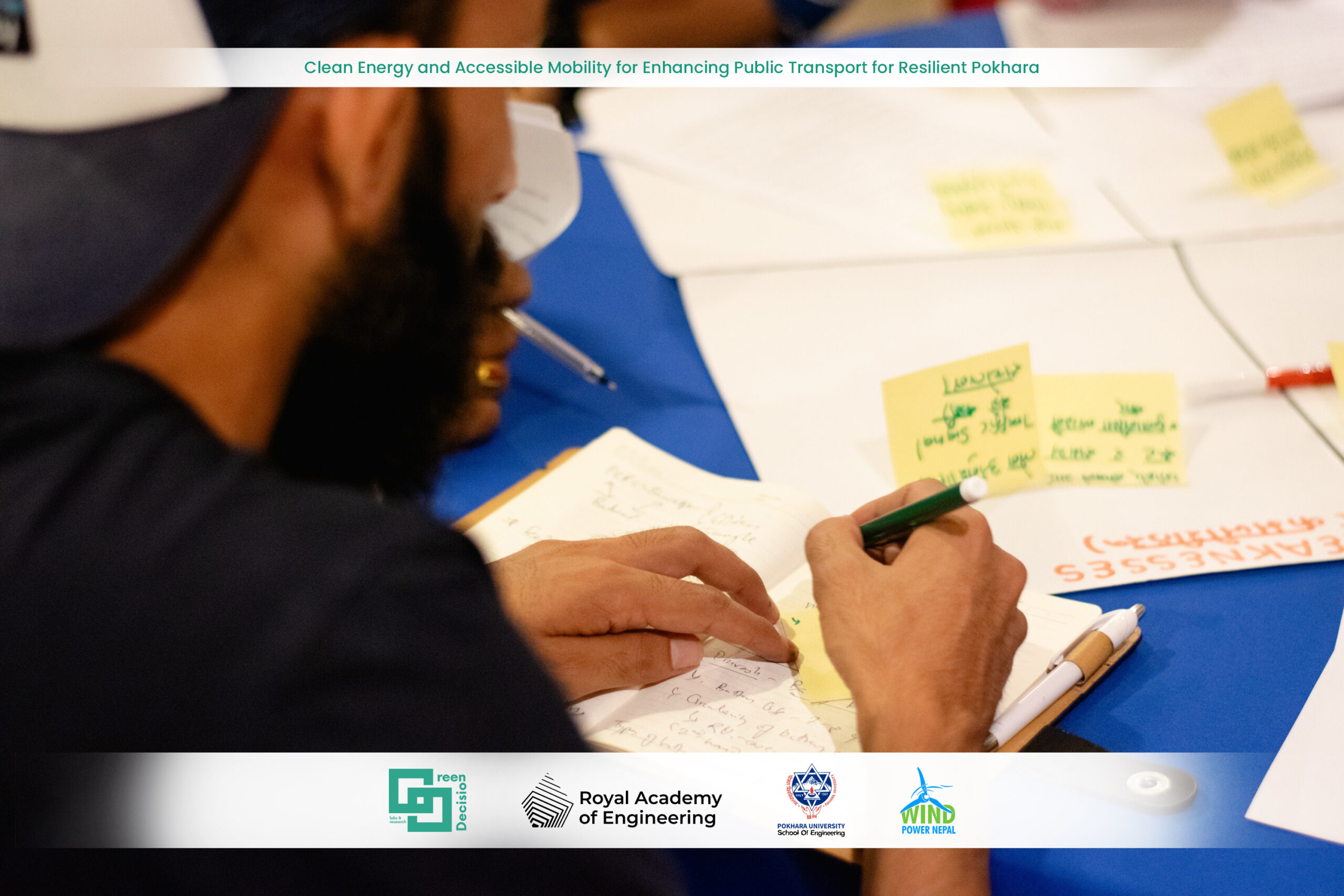
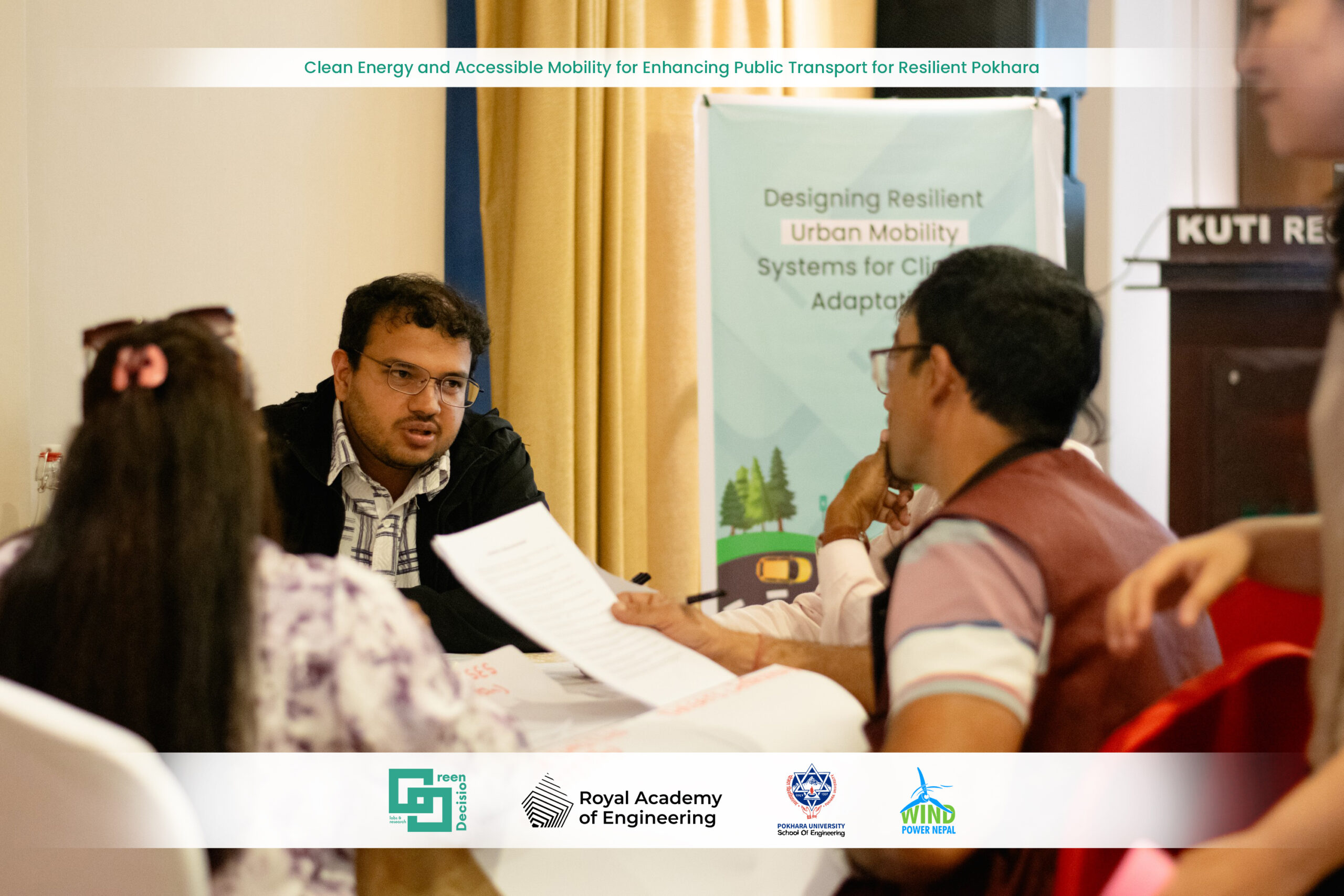
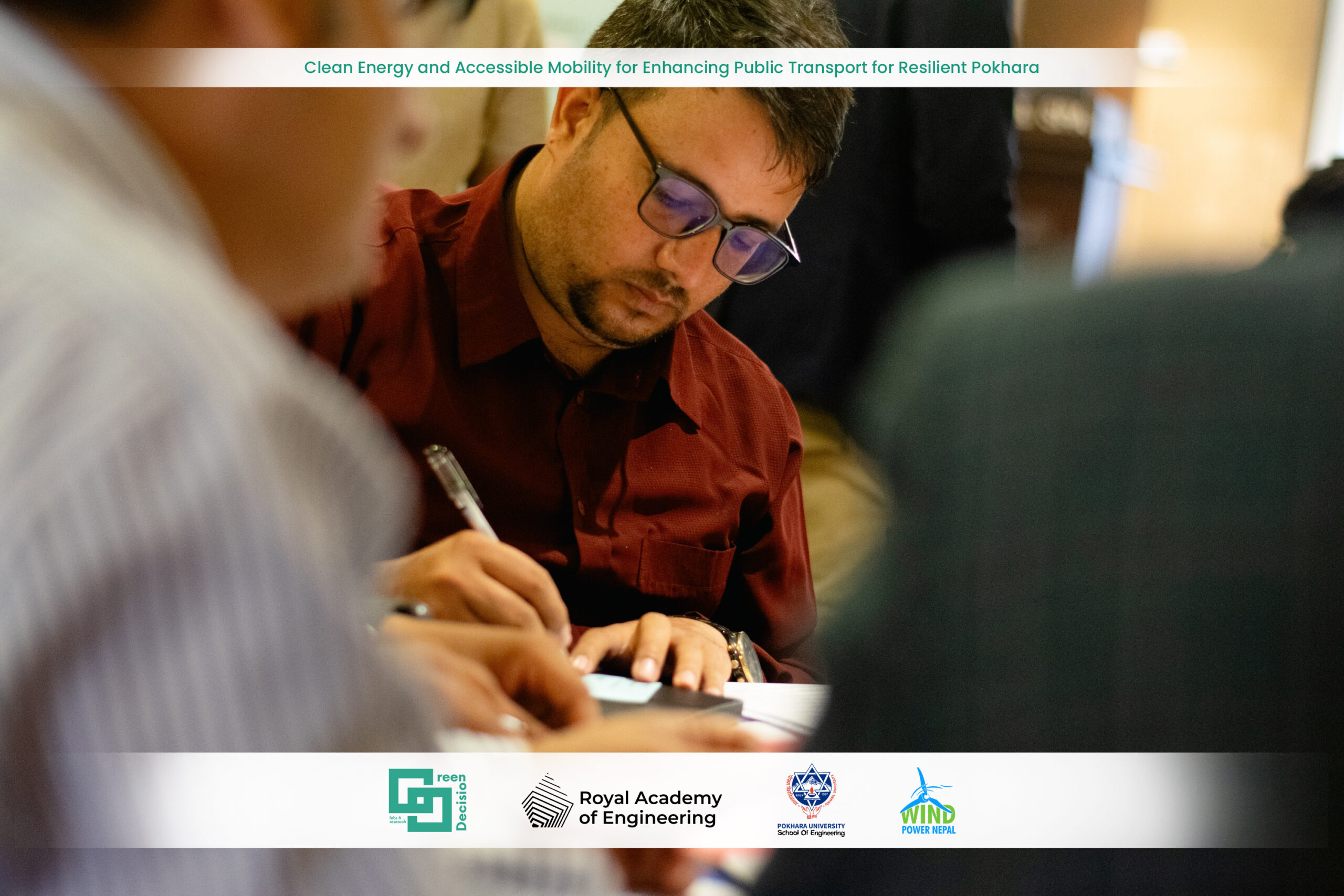
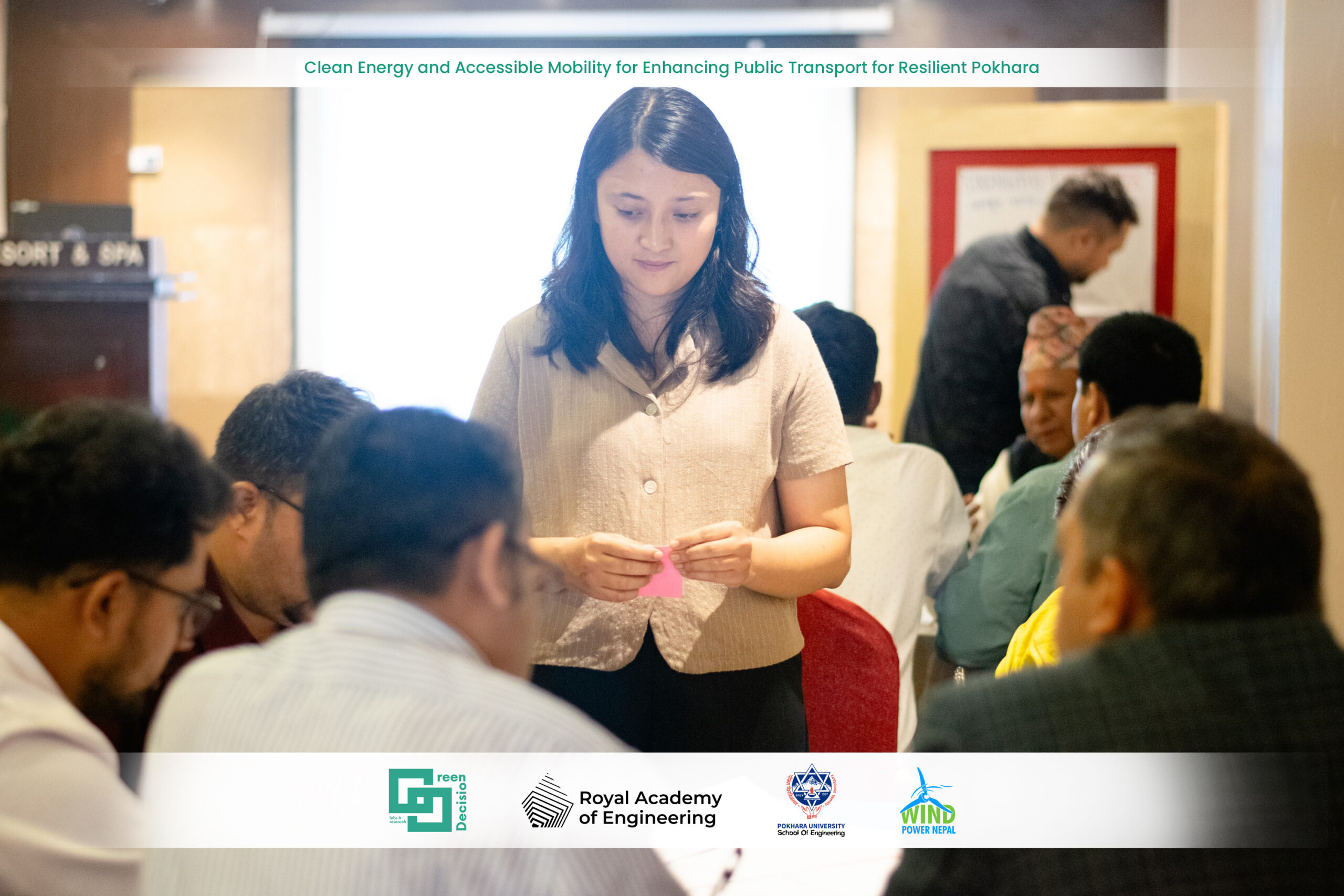
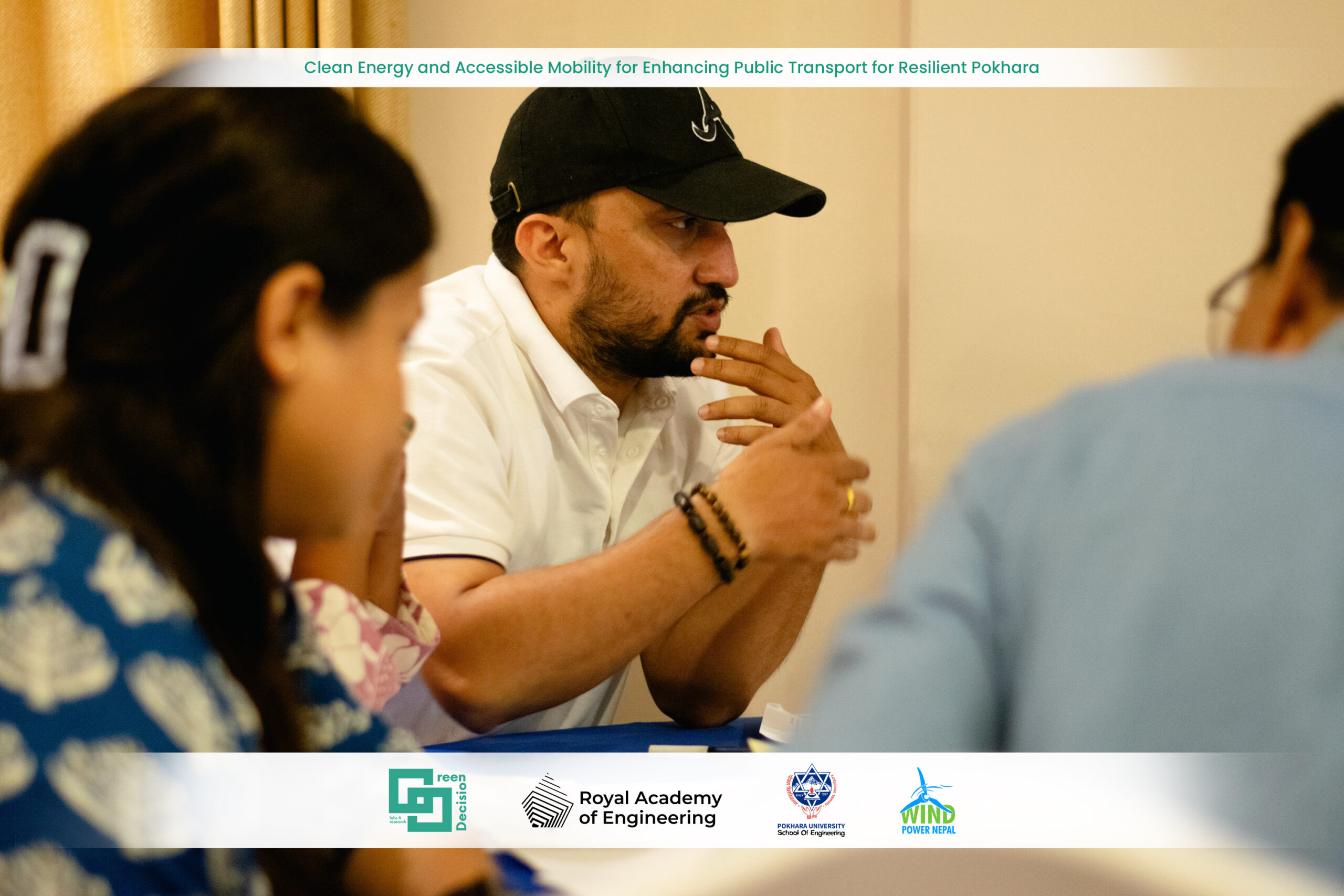
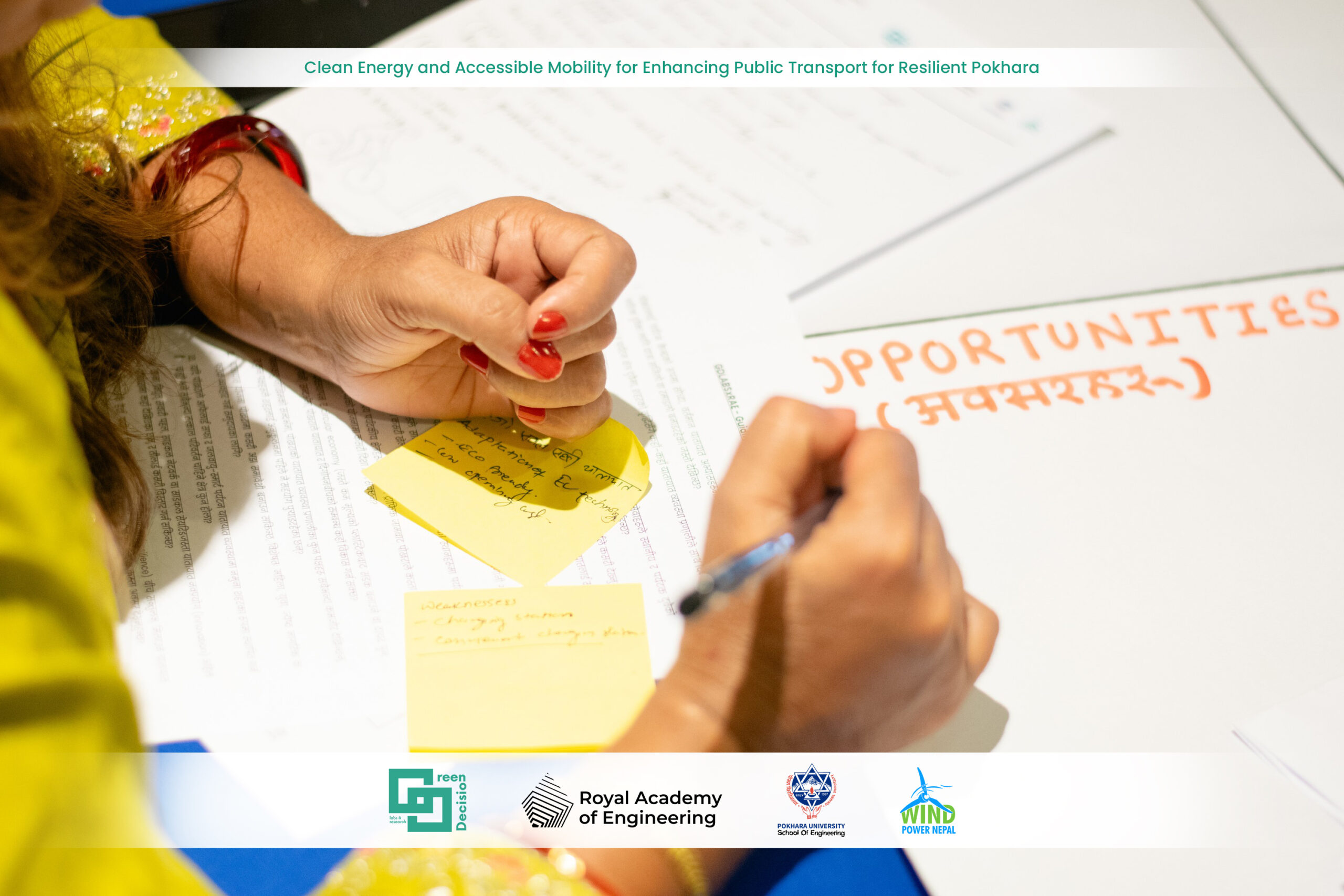
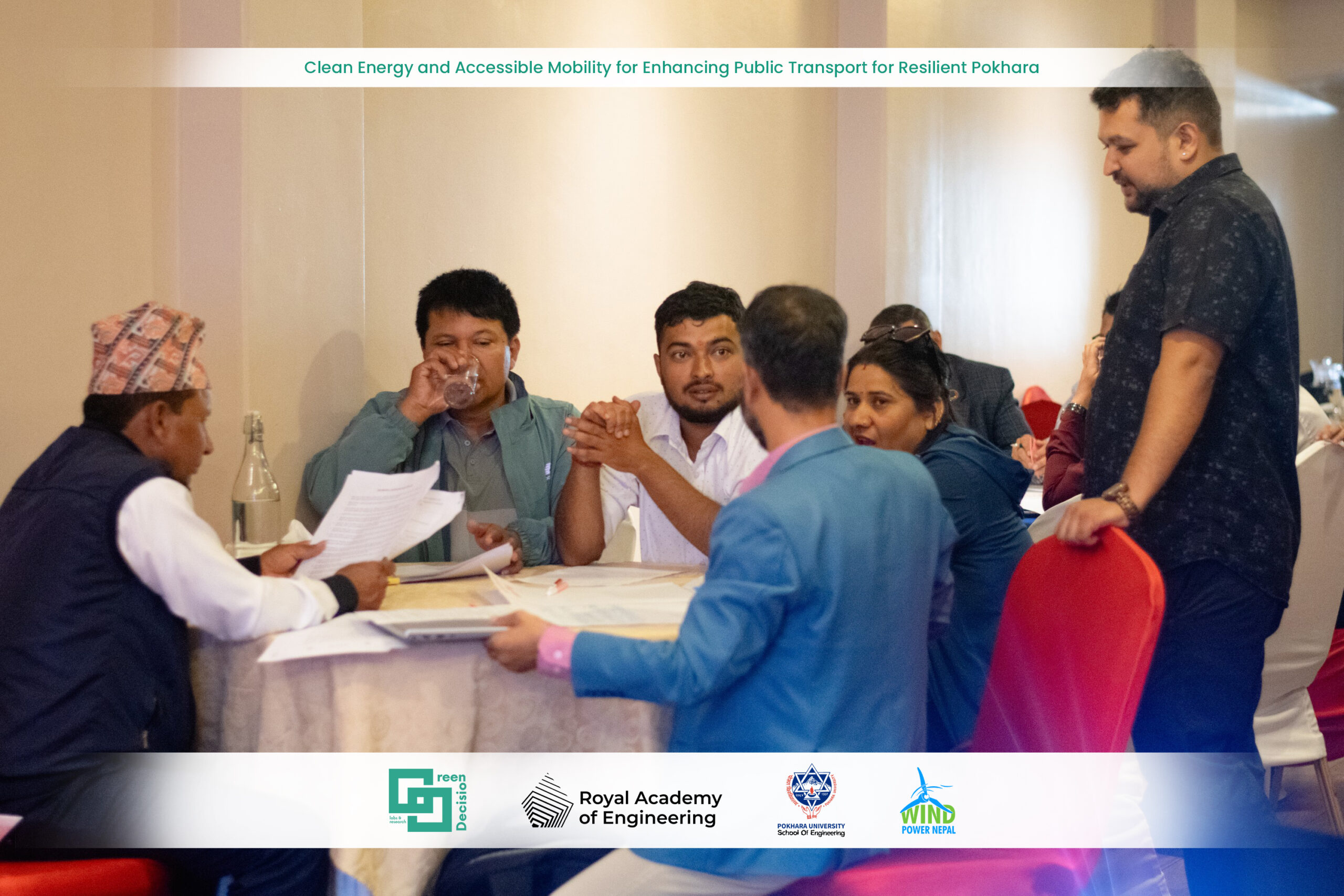
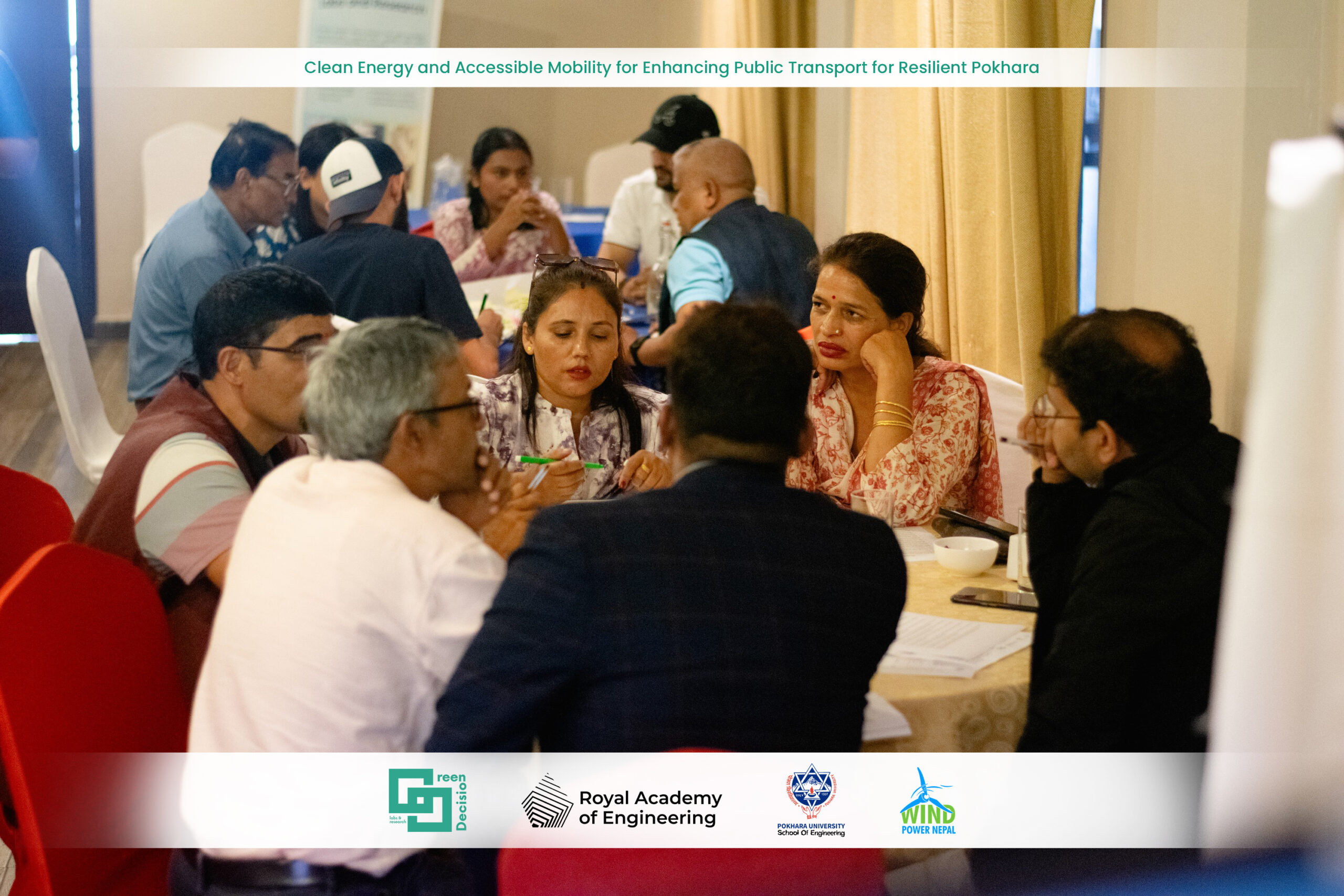
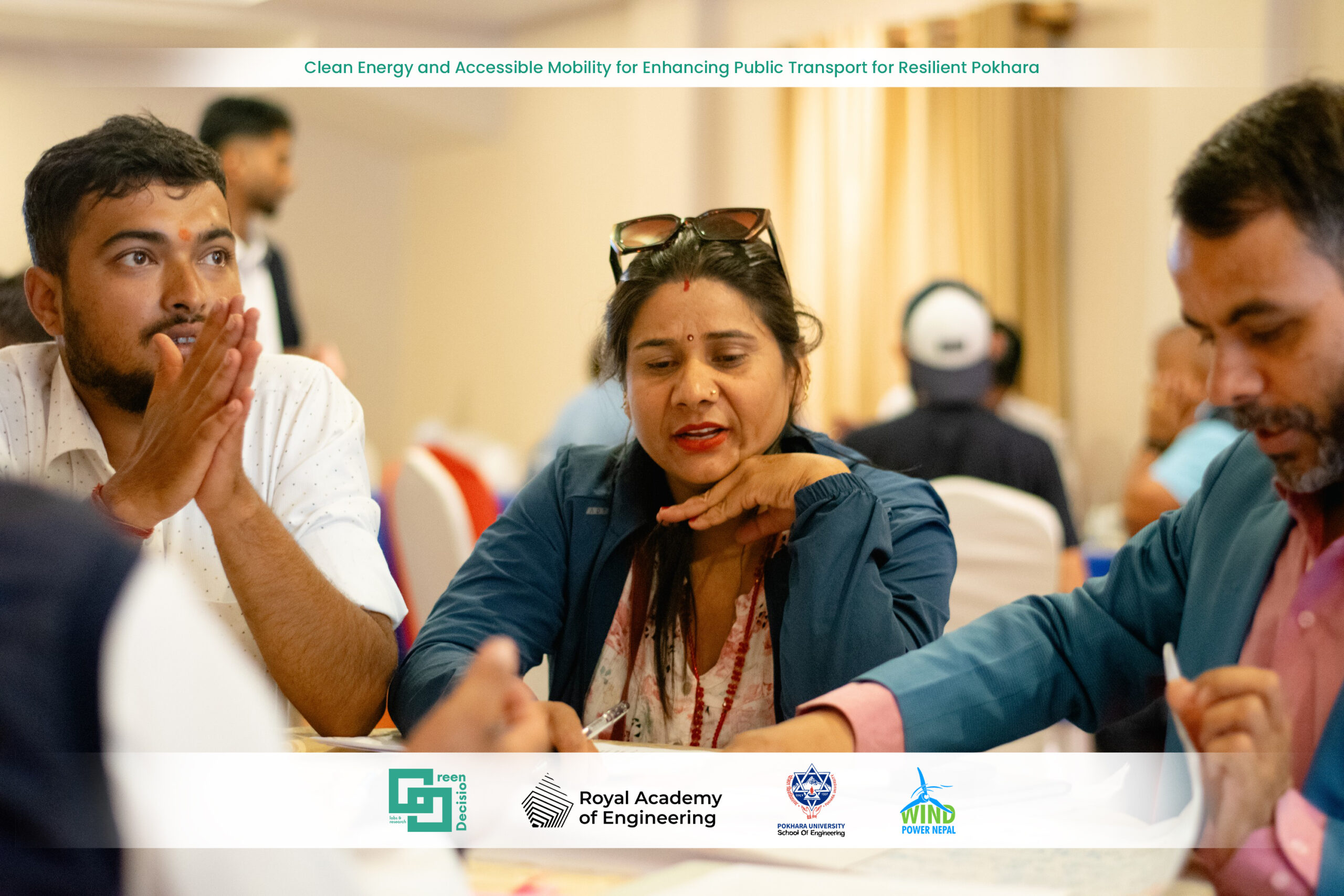
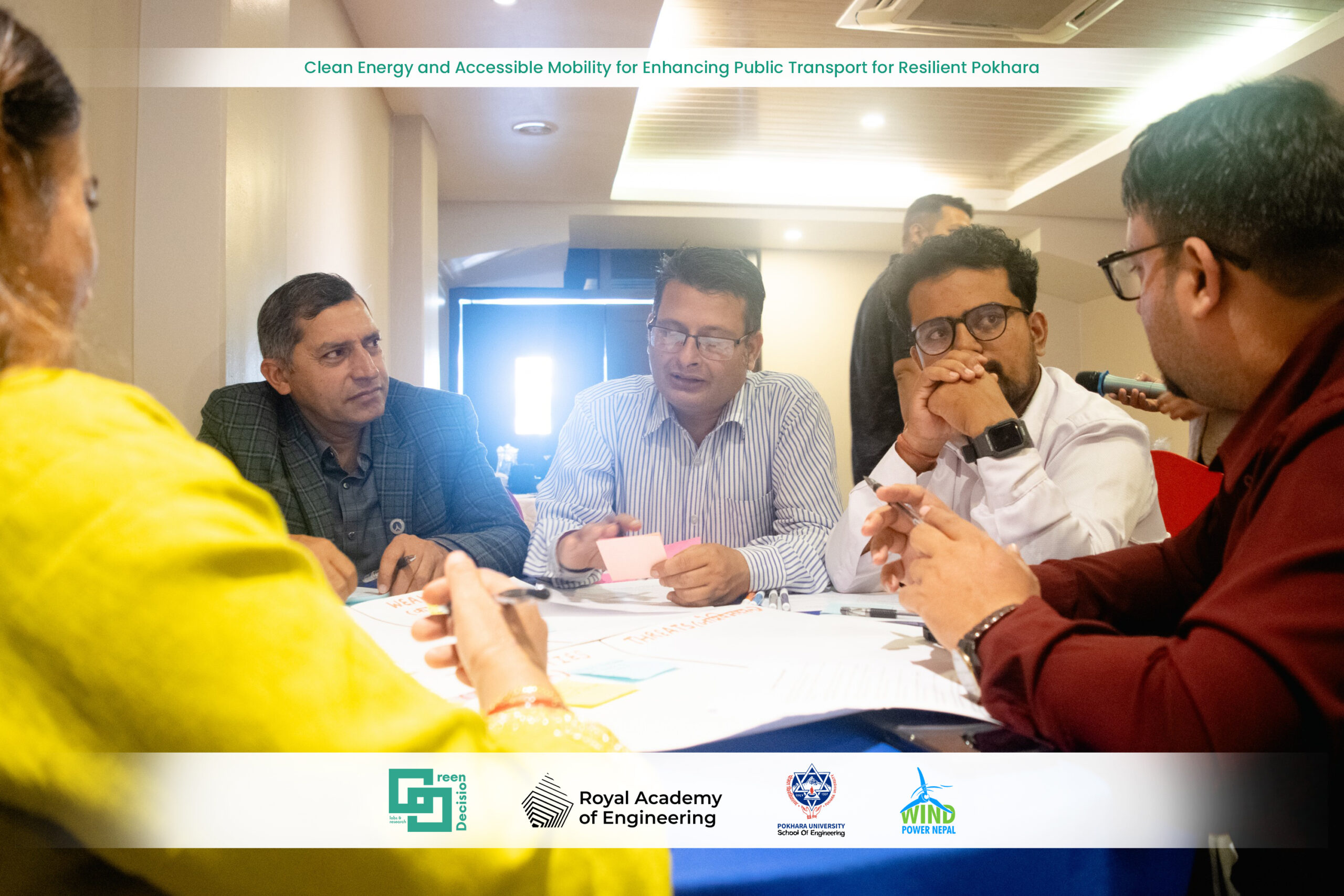
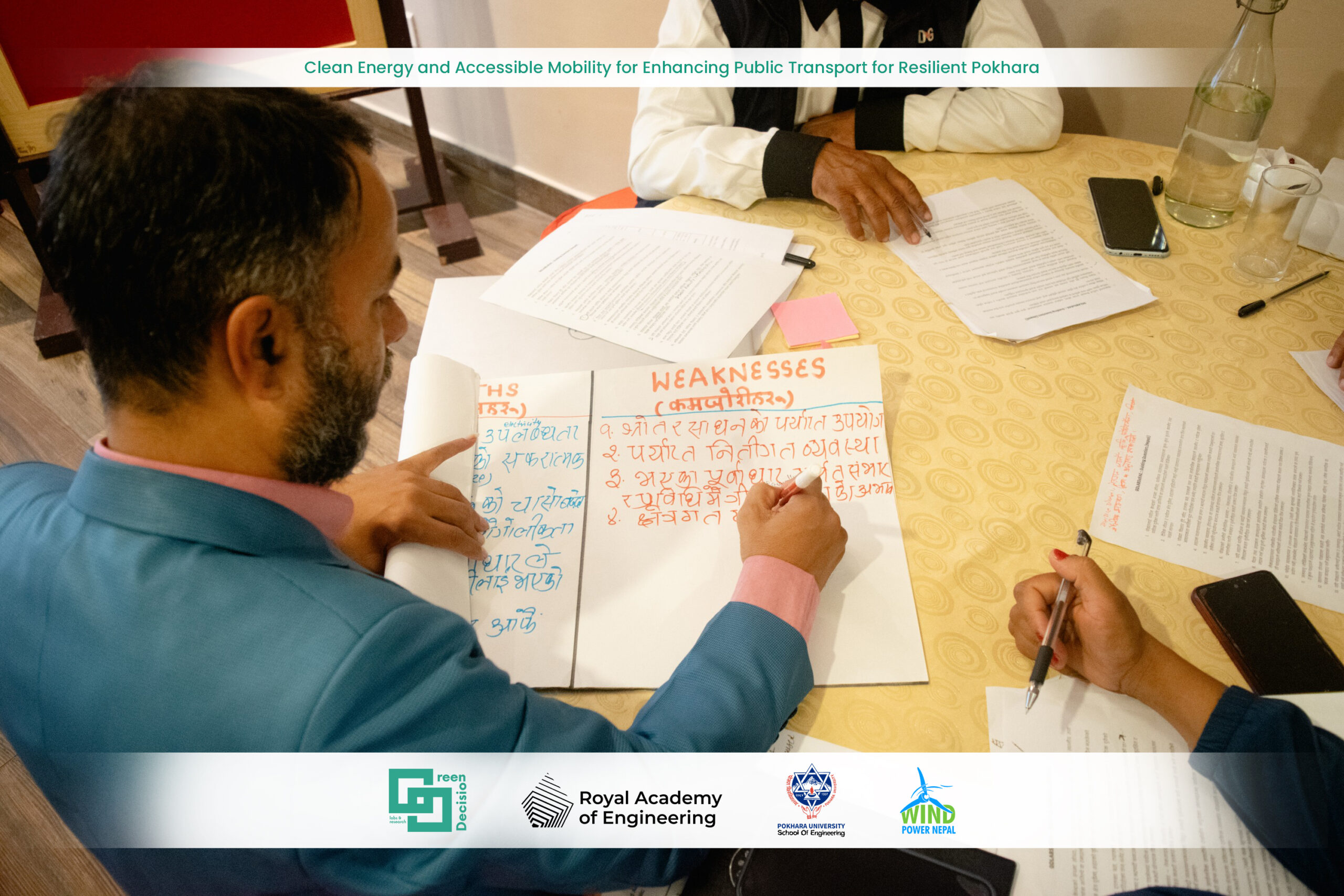
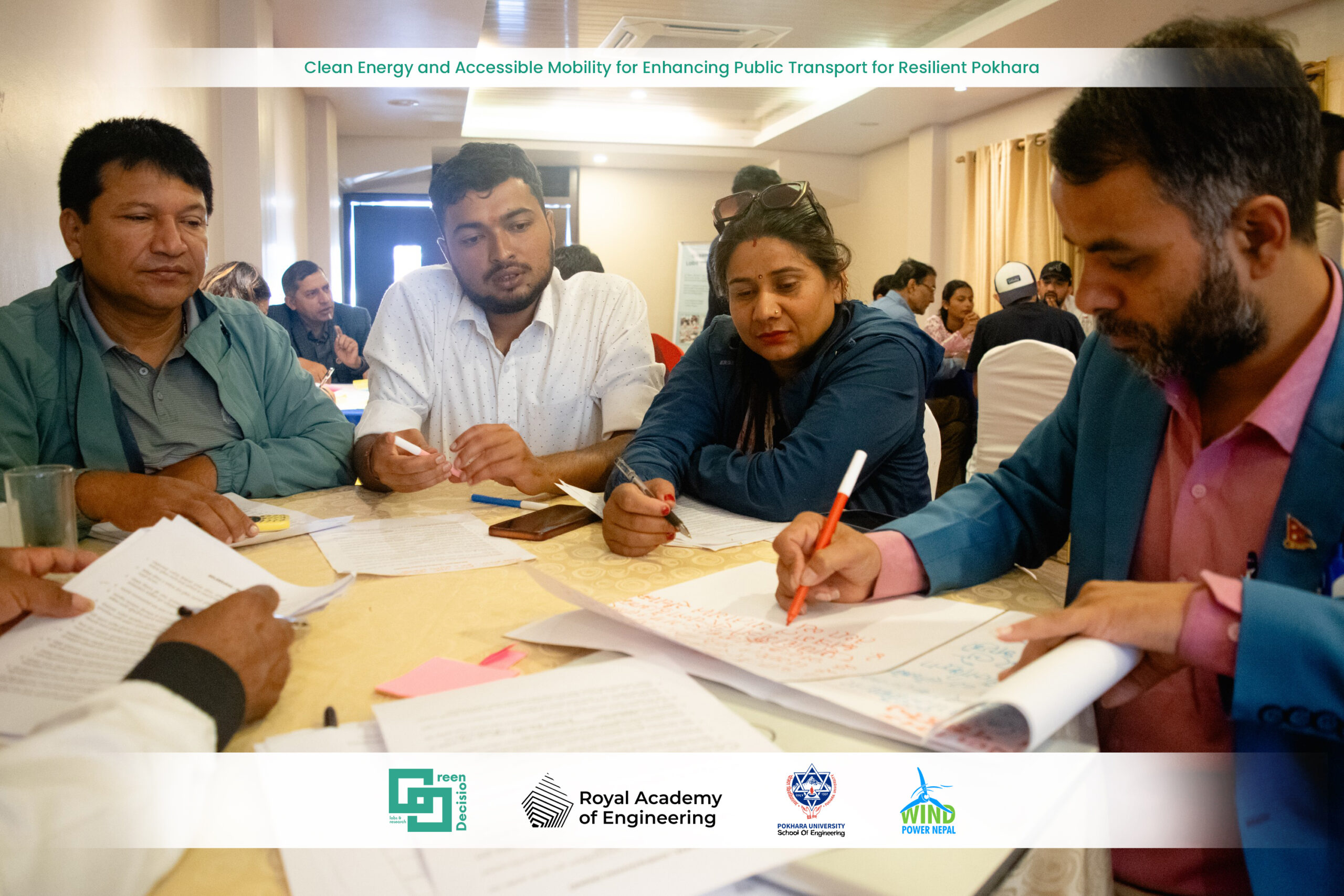
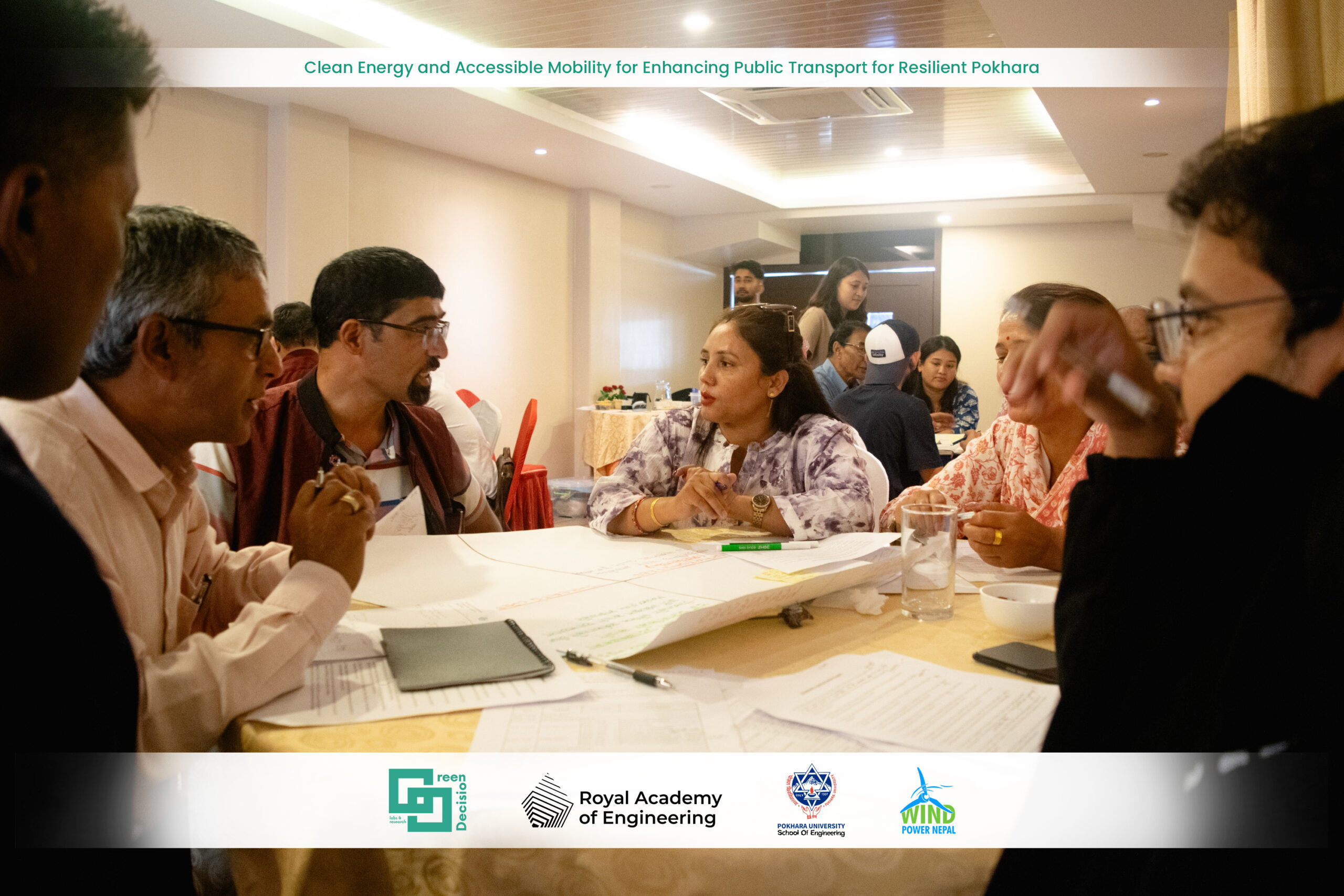
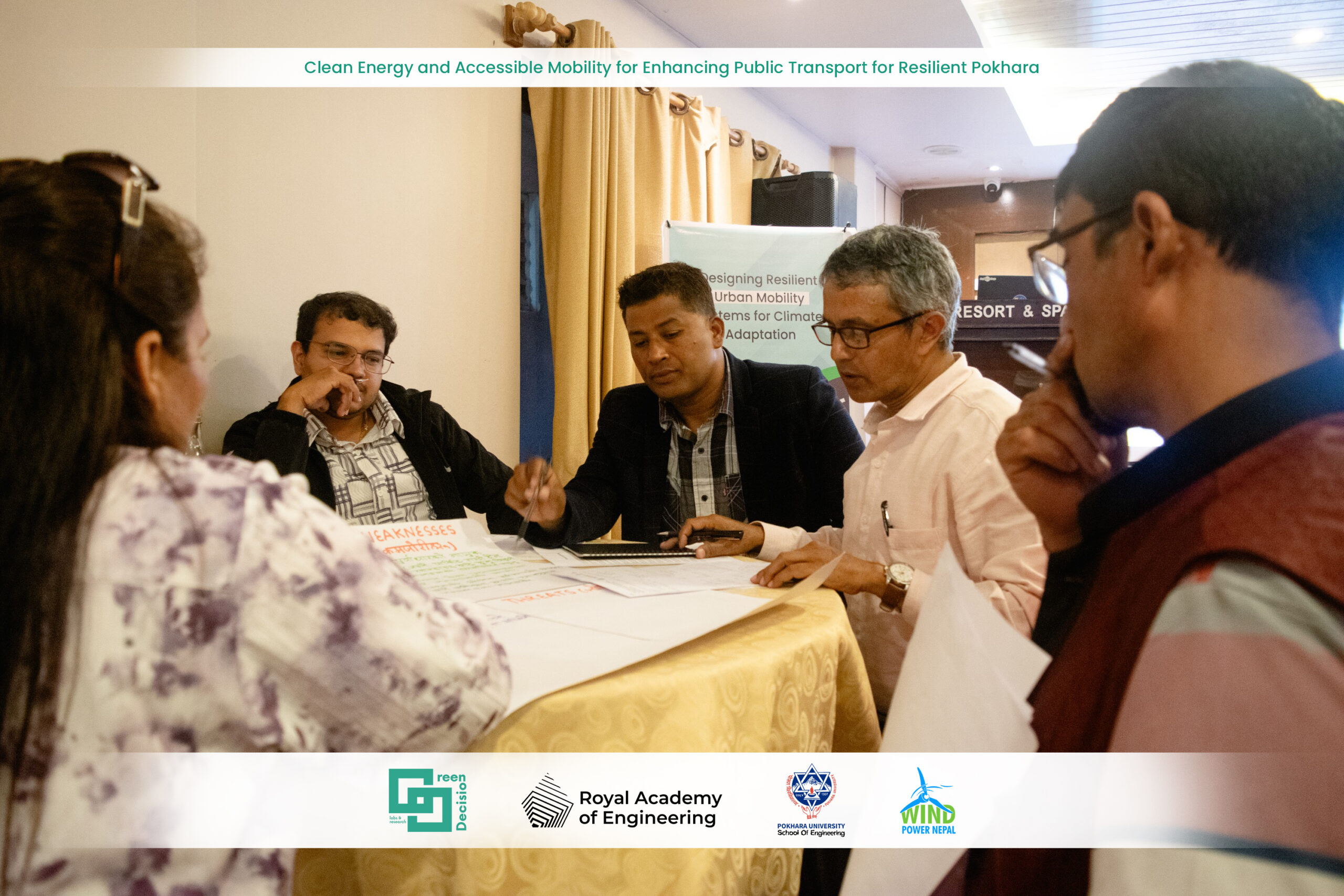
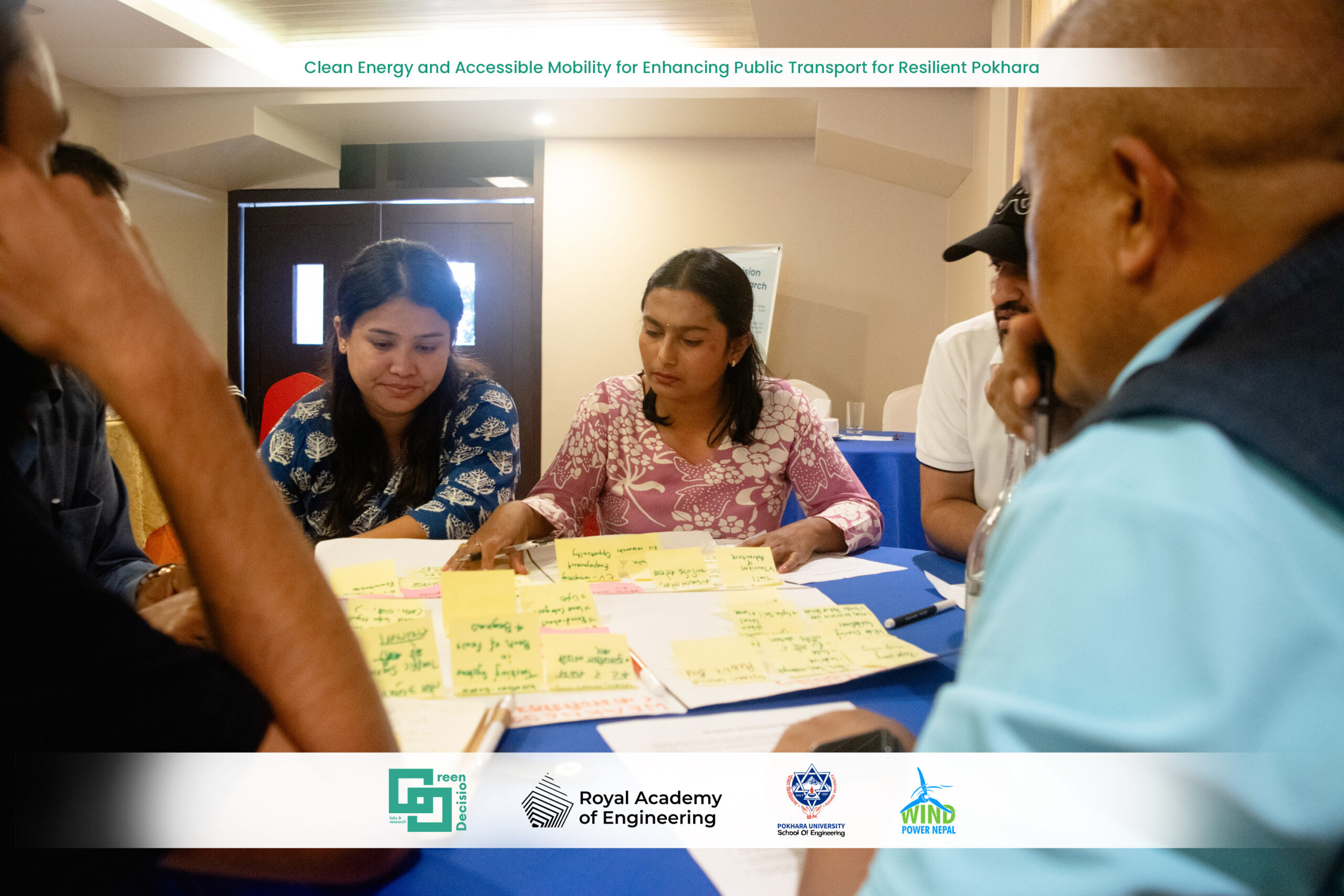
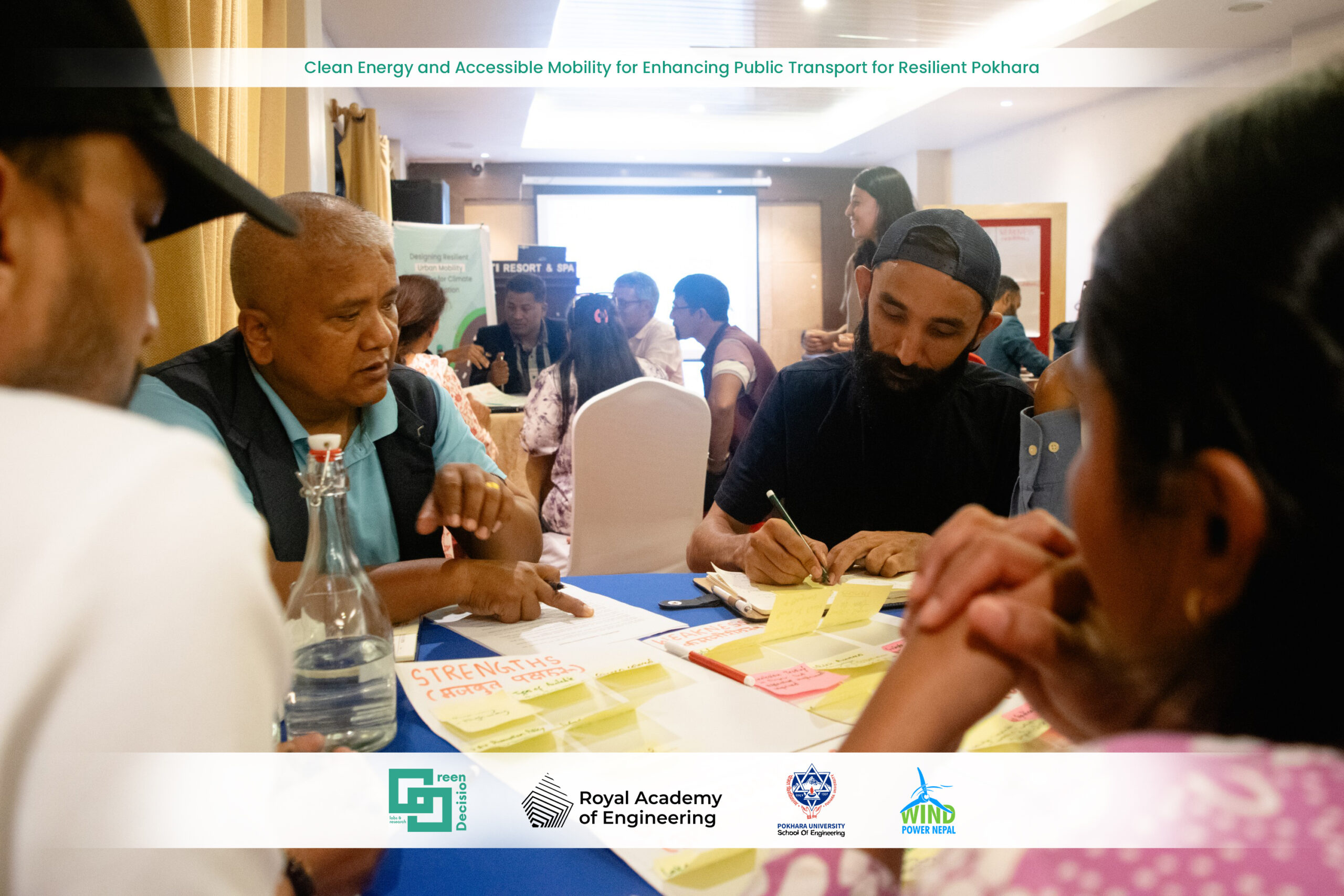
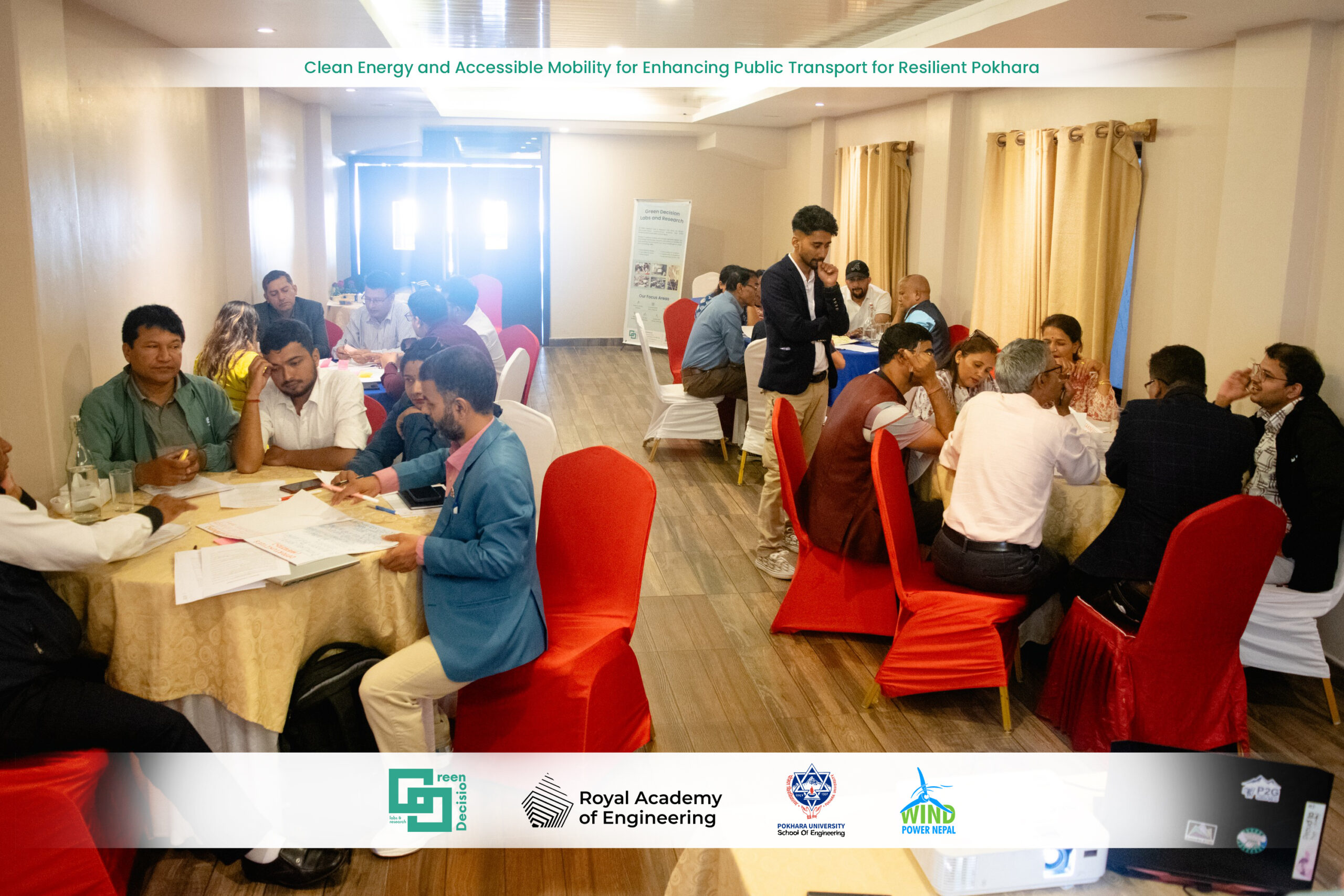
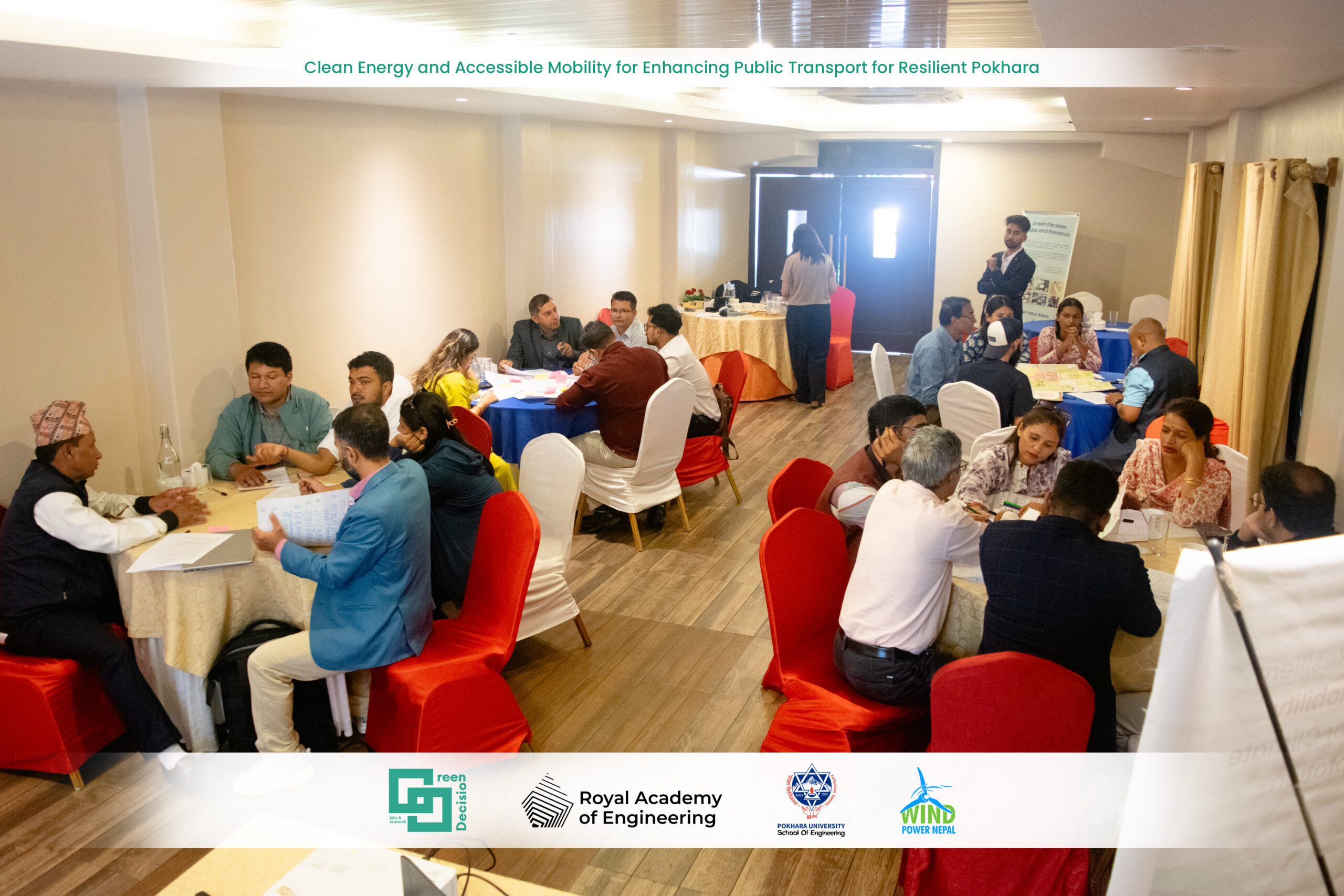
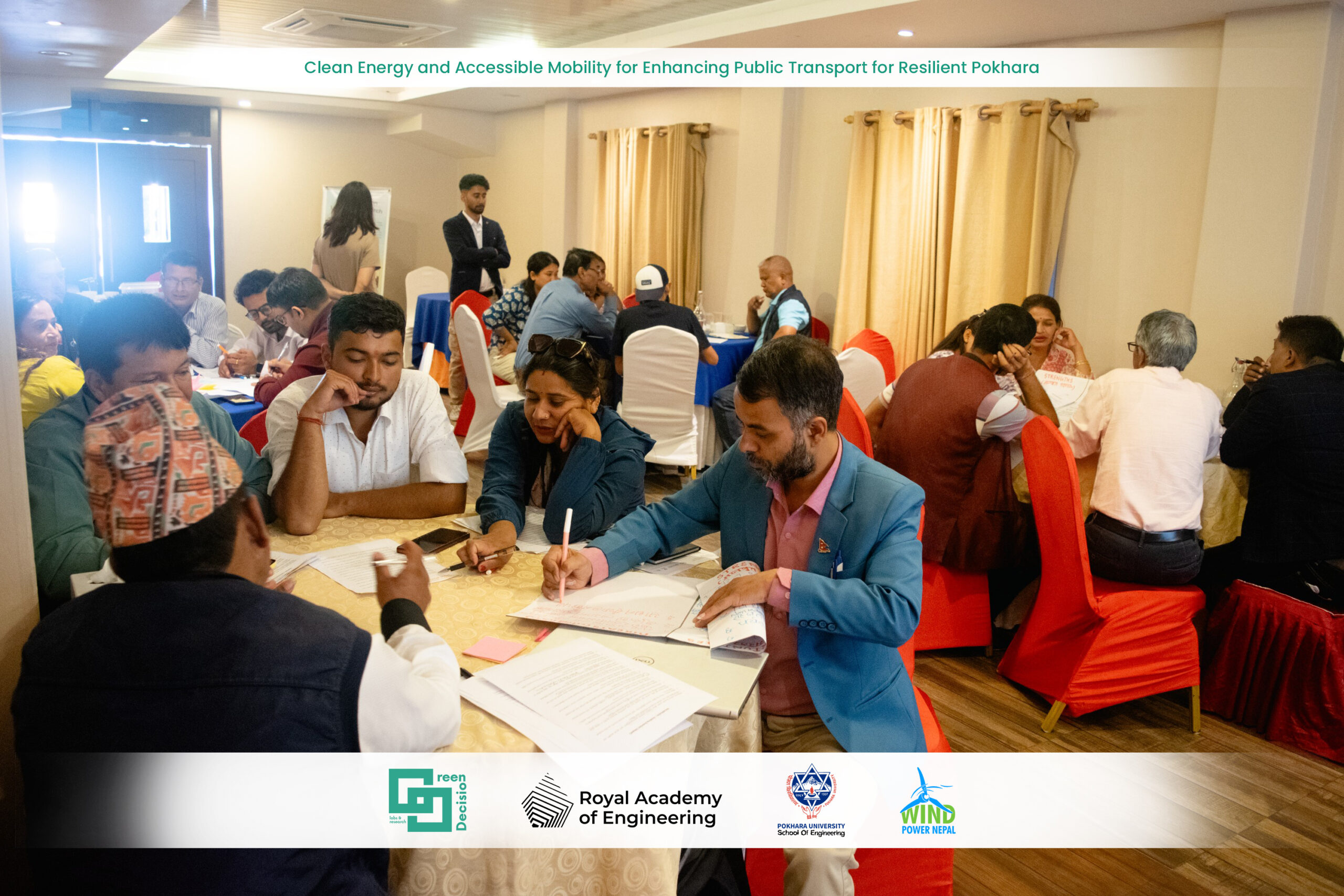
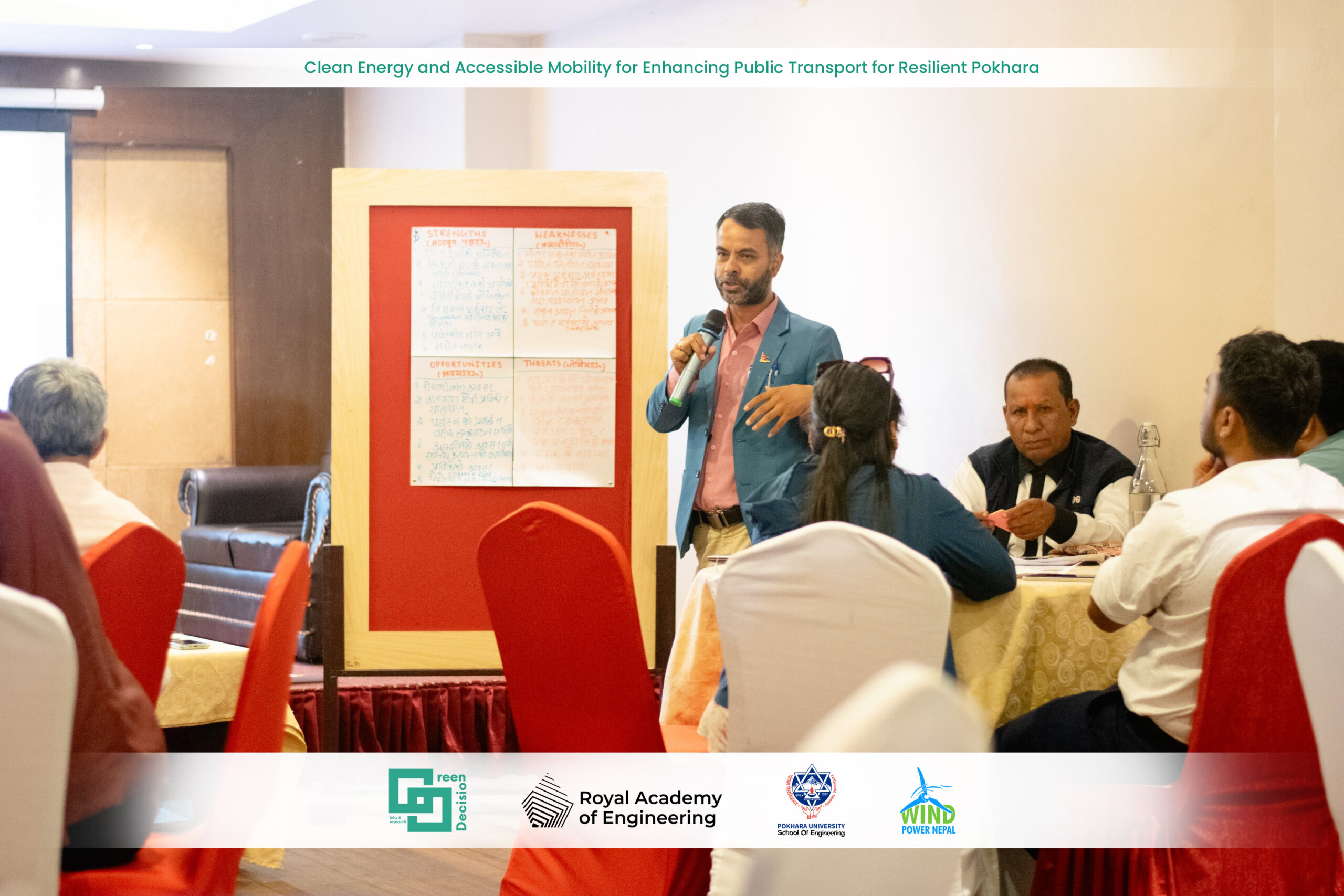
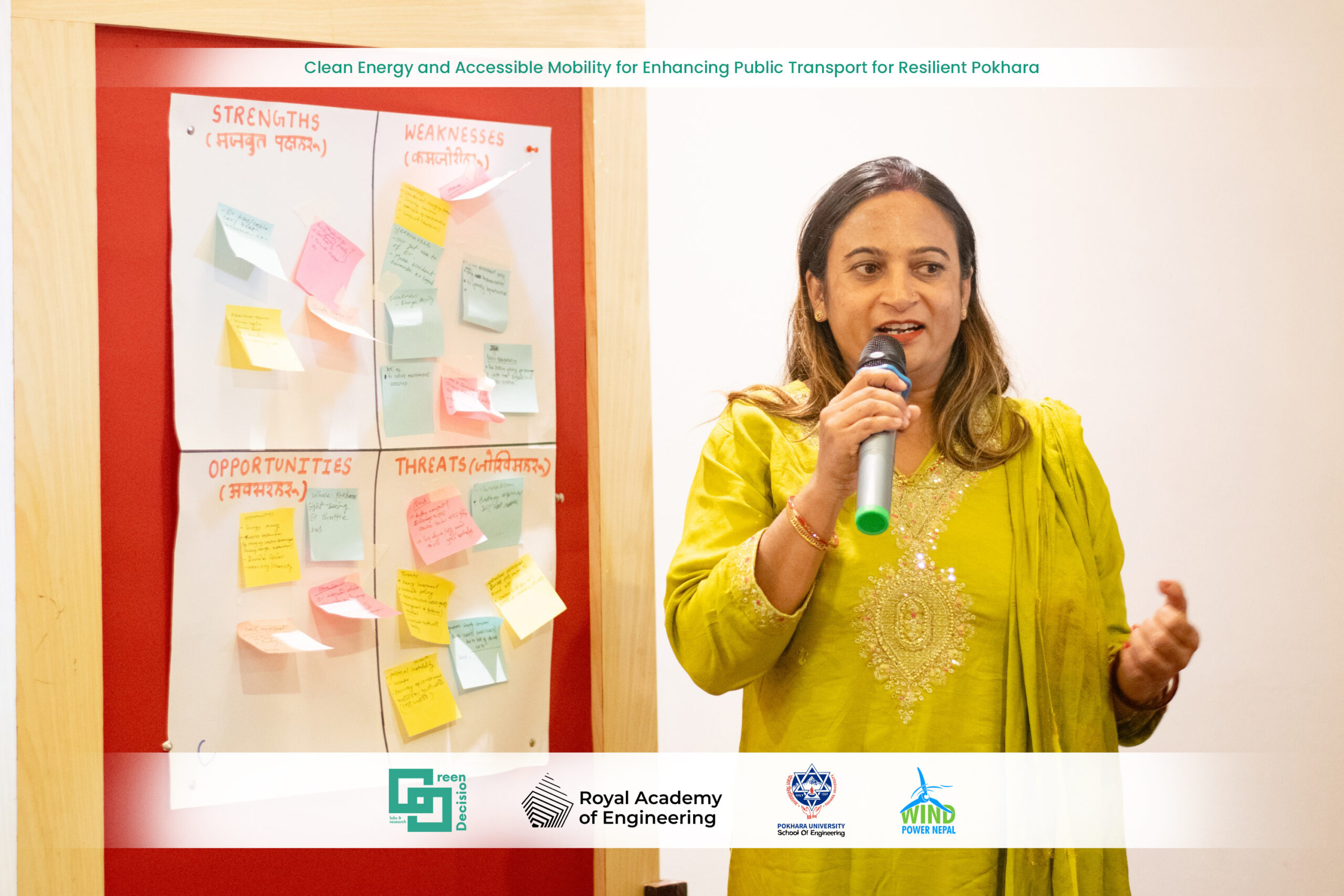
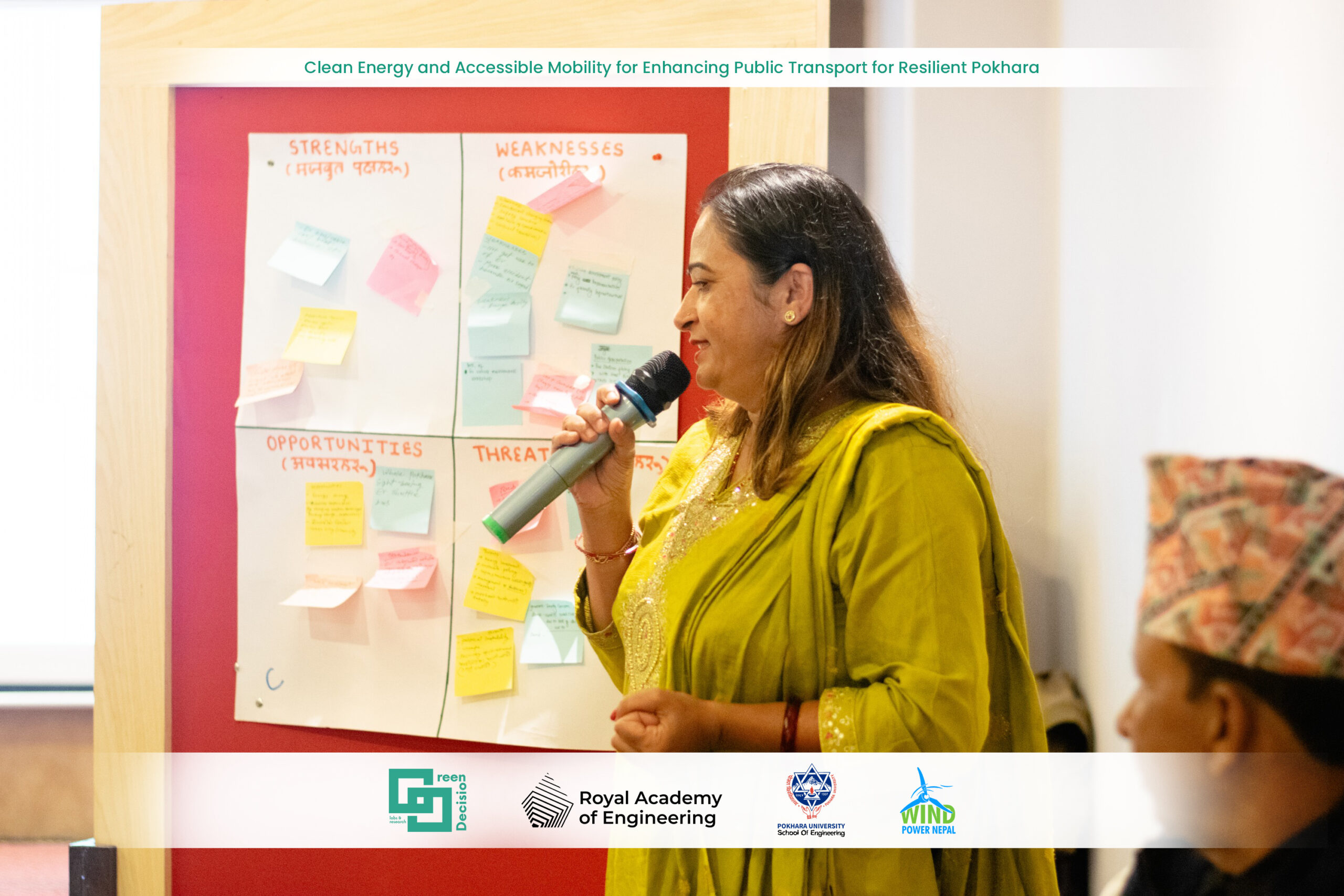
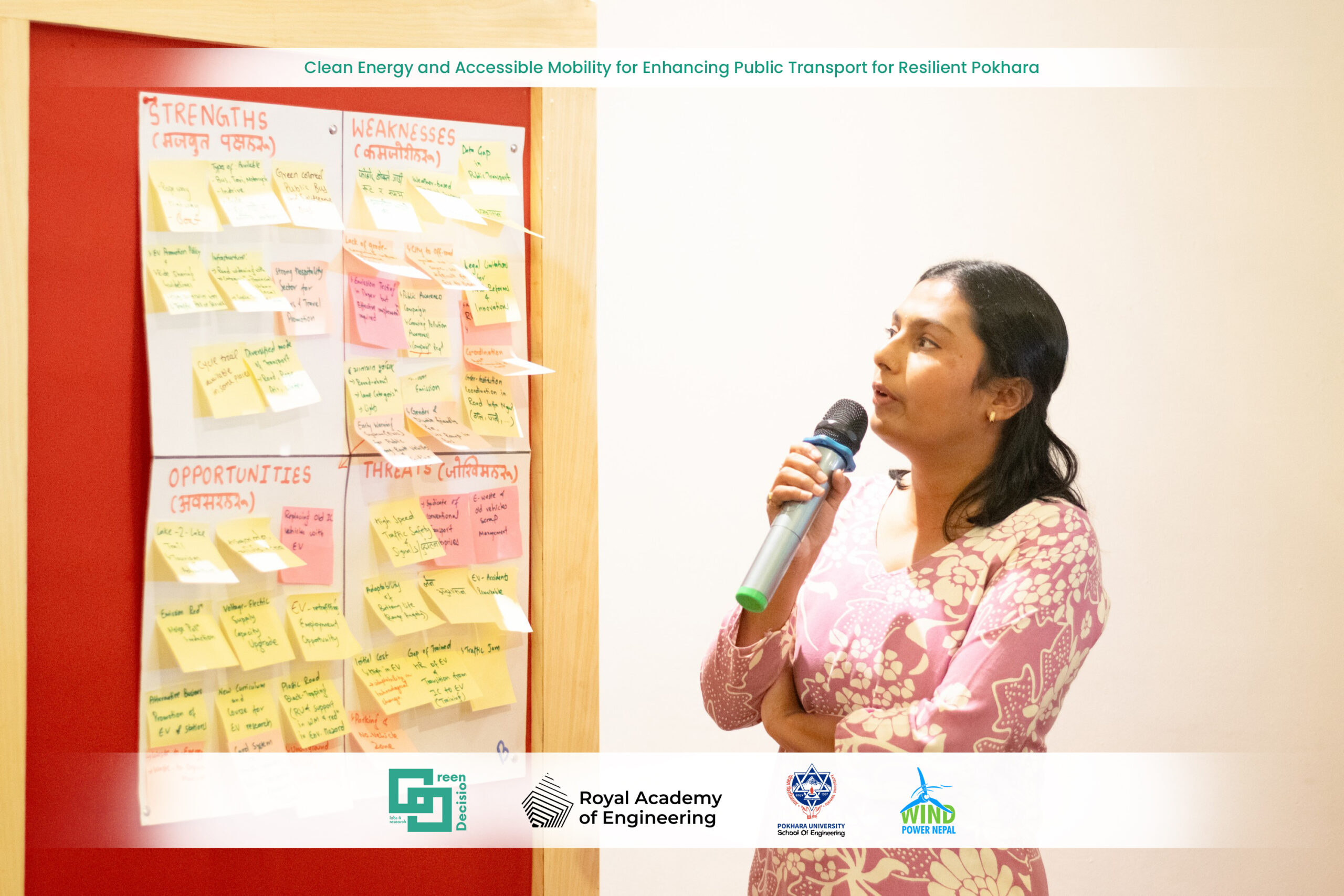
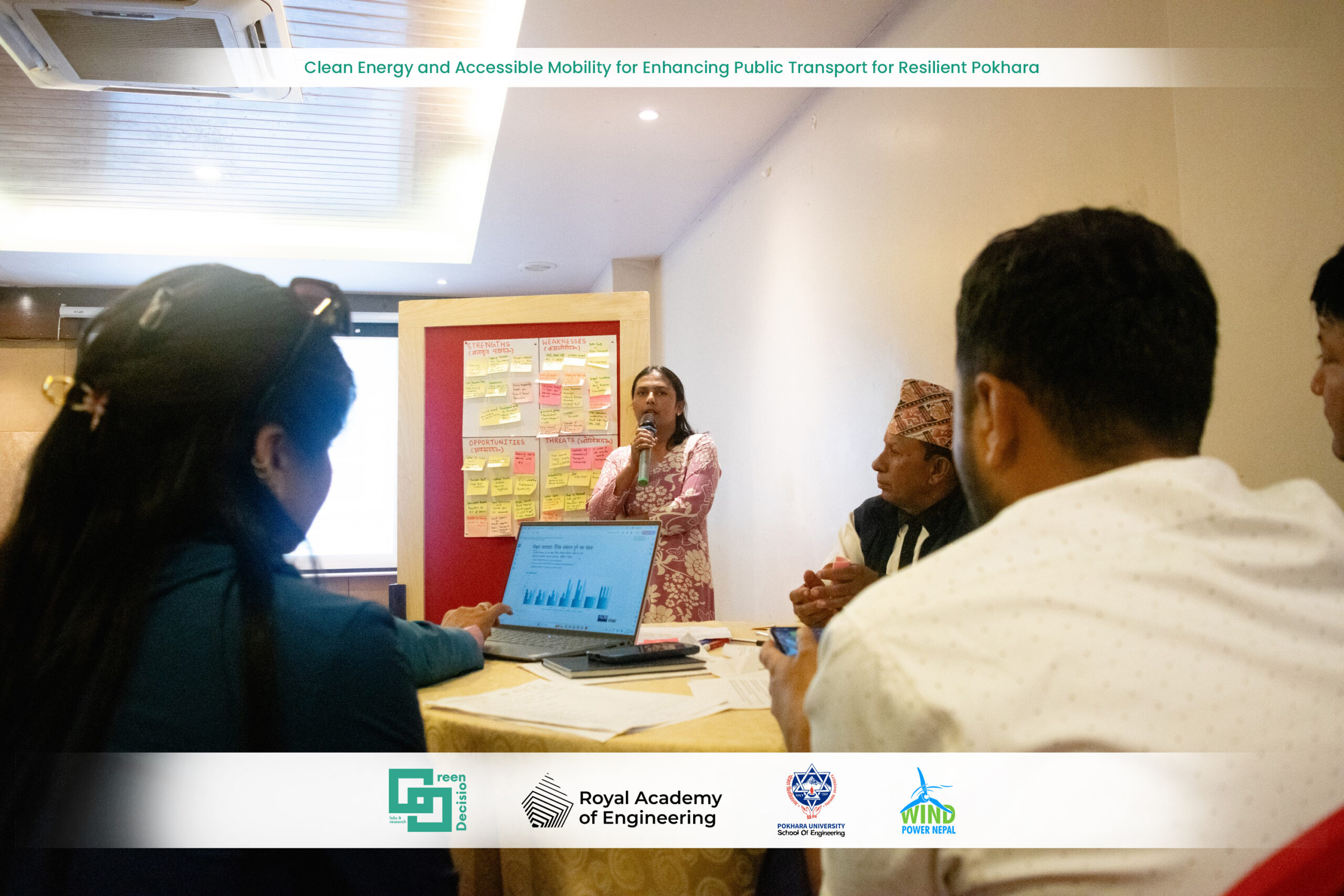
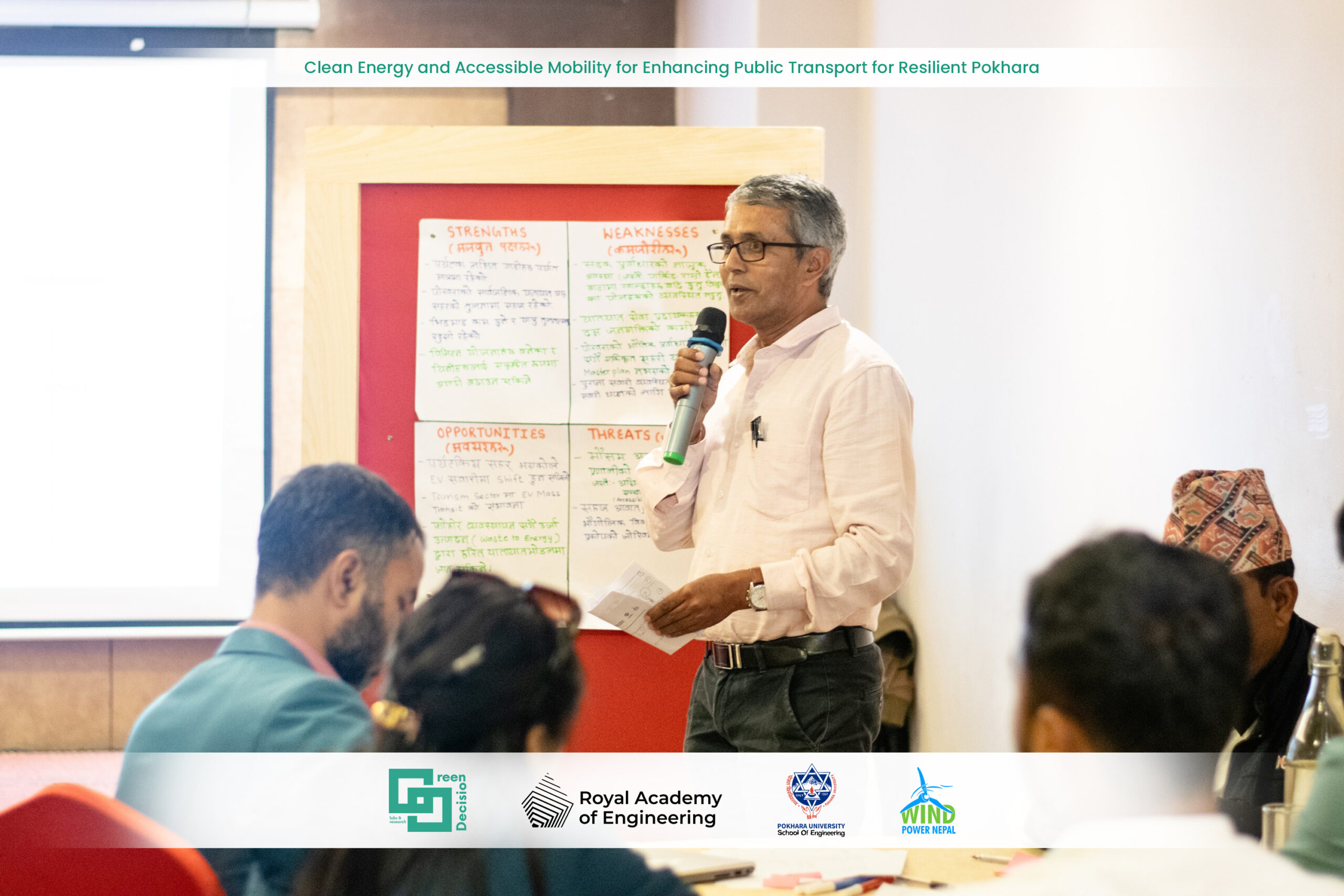
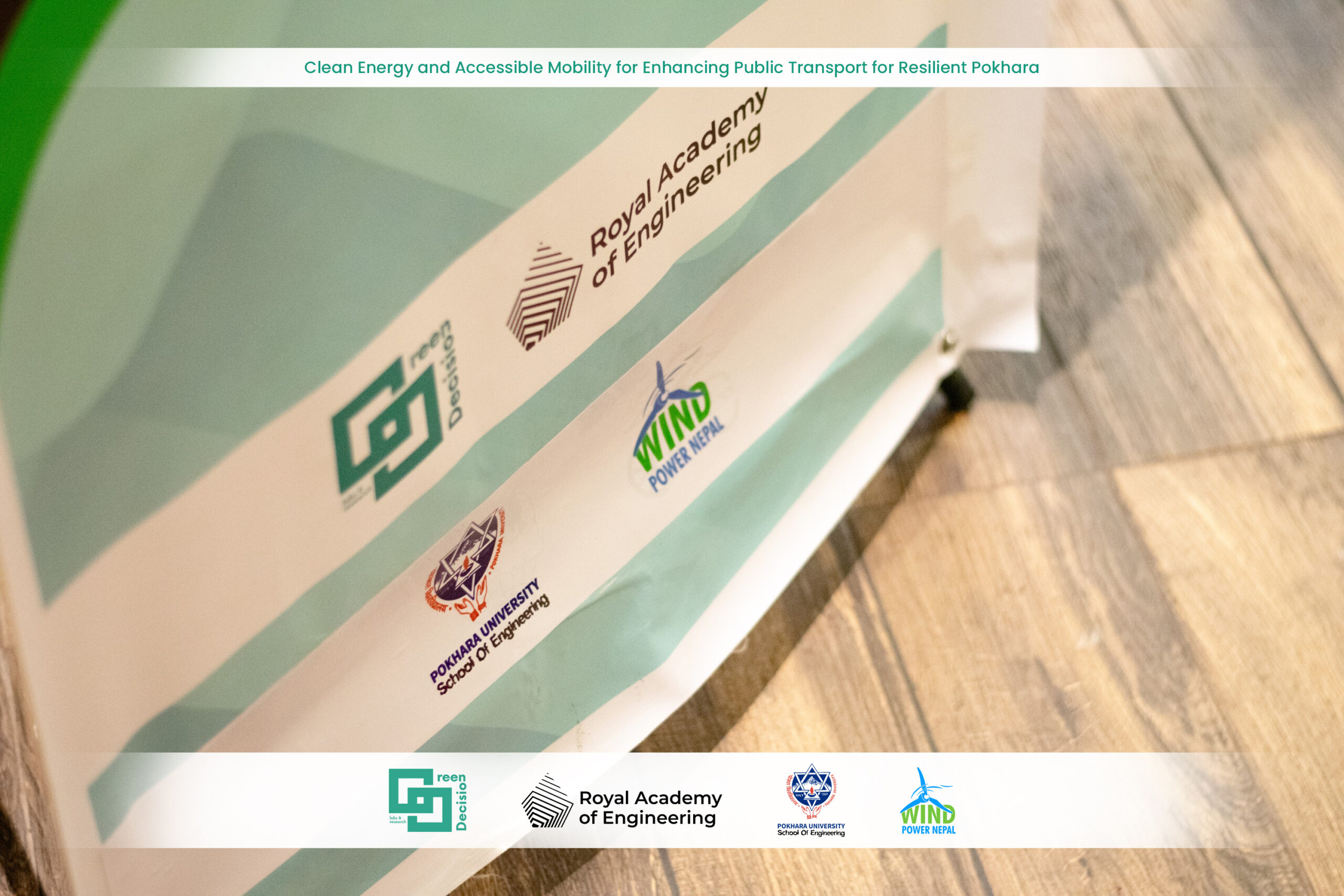
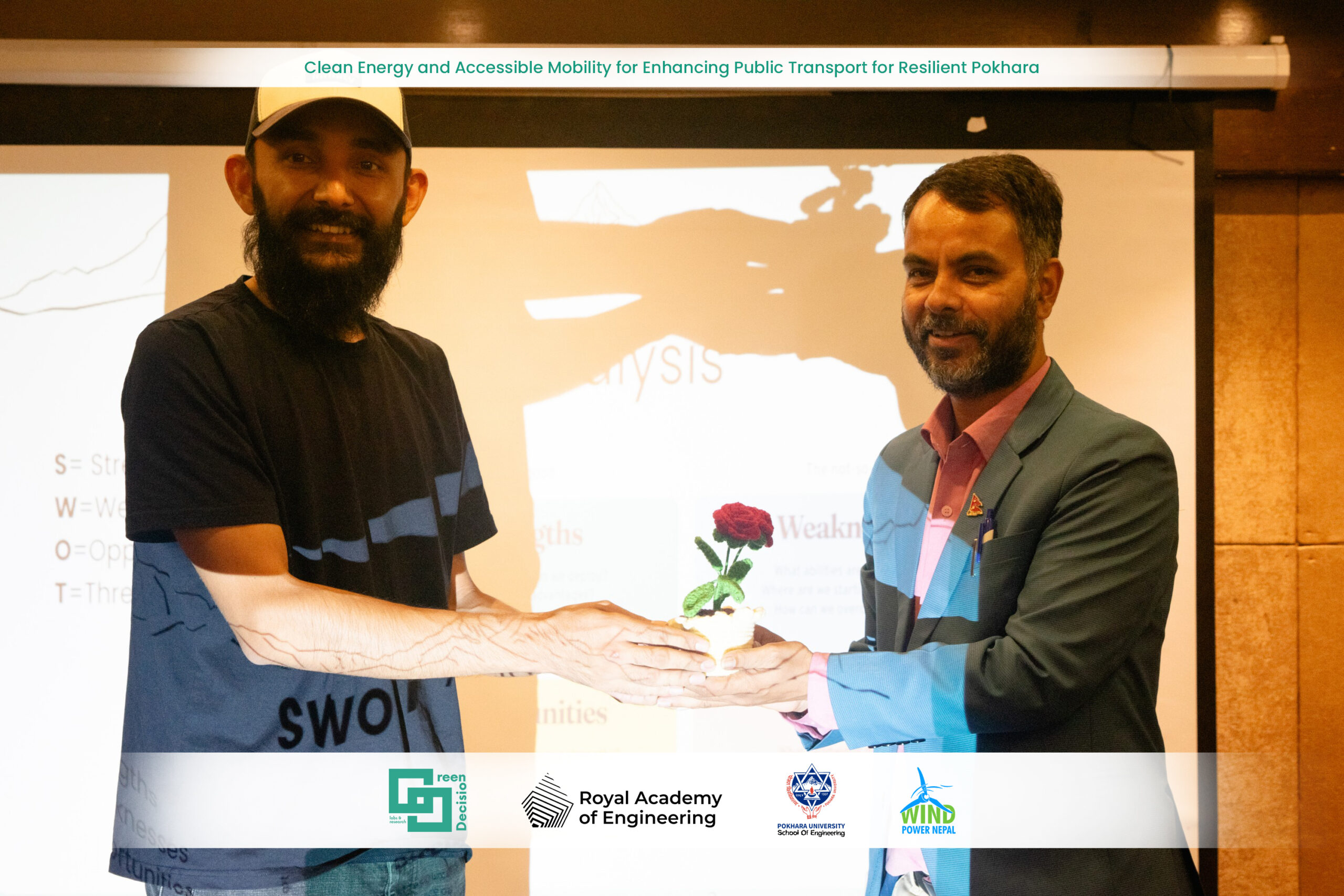
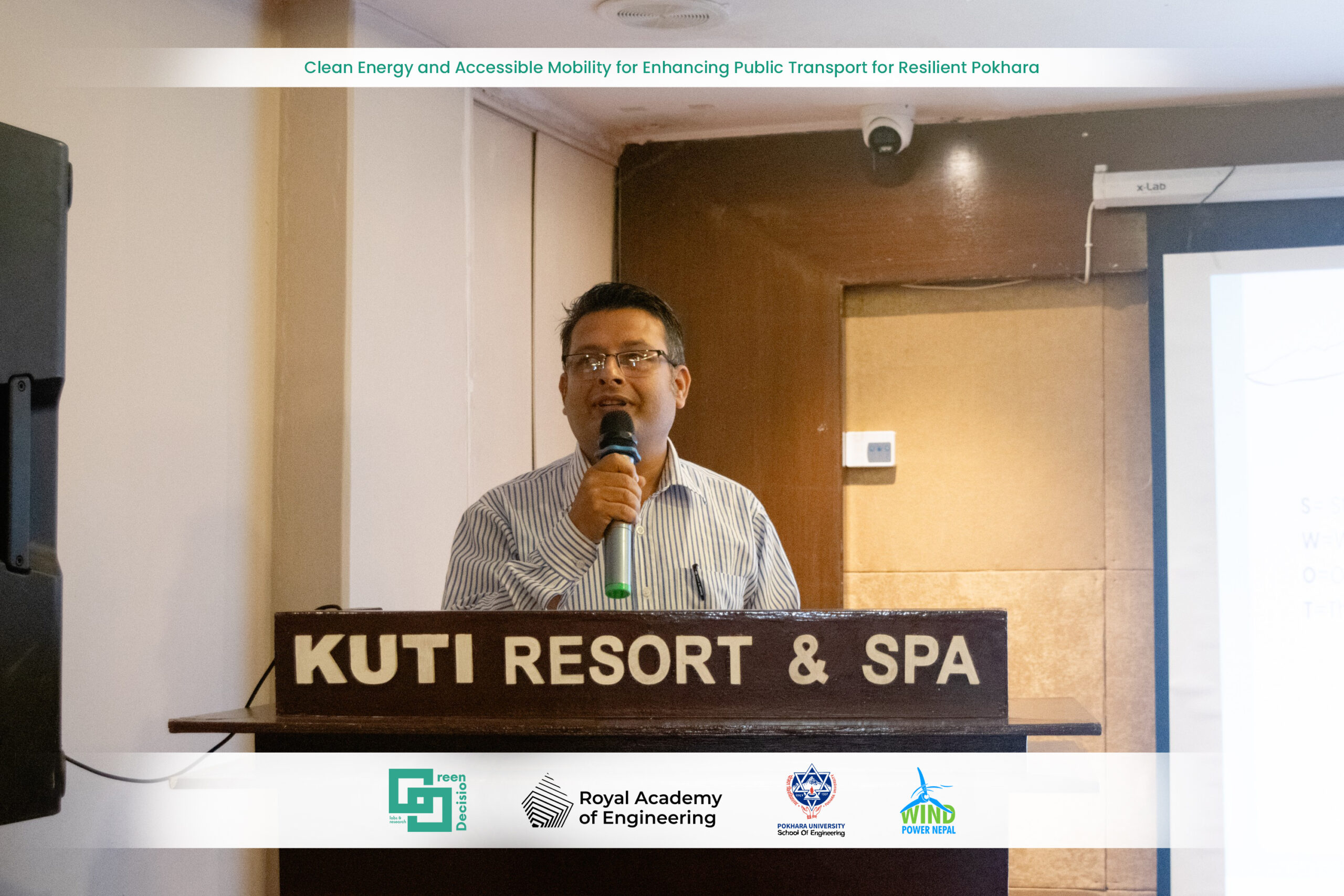
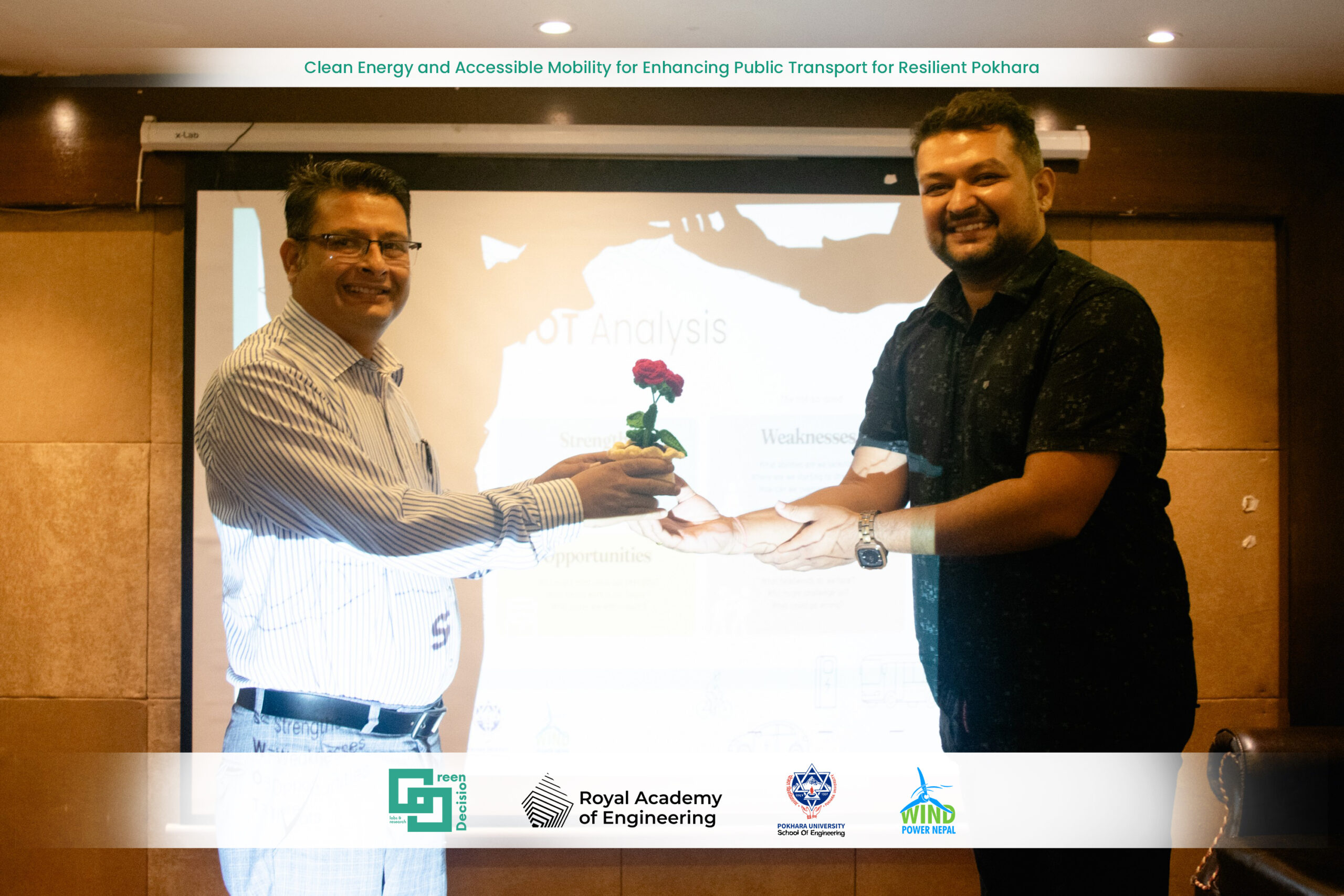
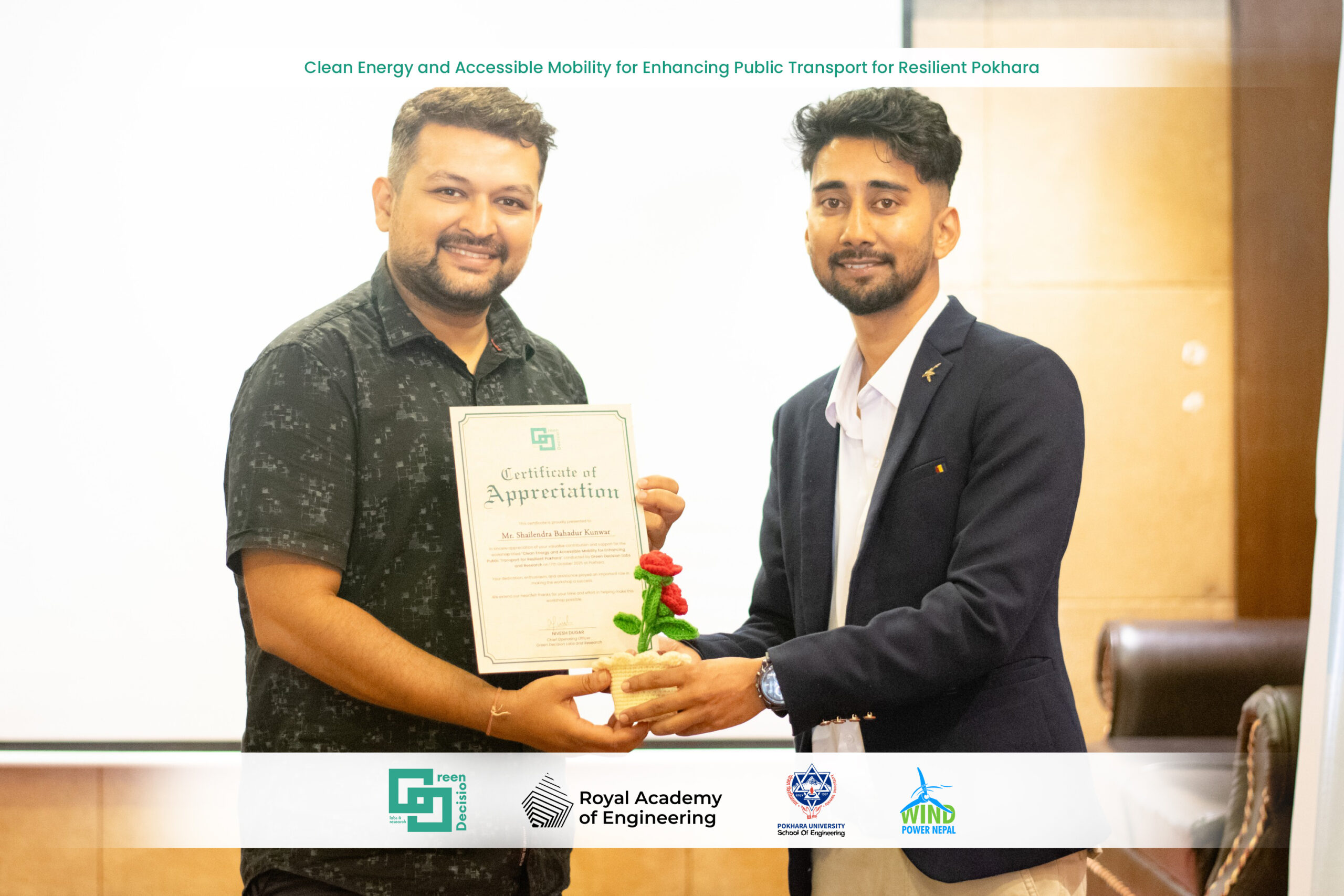
Target Stakeholders
Reflecting Pokhara’s unique tourism and mobility ecosystem, the workshop brought together a broad and diverse group of stakeholders:
- Government & Municipal Agencies: Ministry of Physical Infrastructure and Transport; Pokhara Metropolitan City; Traffic Division; Urban Planning Department
- Tourism Sector Stakeholders: Hotel Association of Pokhara; Tourism Board; Adventure and Eco-Tourism Operators
- Transport Service Providers: City Bus Services; Taxi and EV Union Representatives
- Private Sector & Startups: EV charging service providers; EV importers; Plastic-to-road and tyre recycling companies
- Academia & Research Institutions: Pokhara University; Tribhuvan University (Western Regional Campus); local researchers specializing in mobility, infrastructure, and climate
- Development Agencies & NGOs: ADB; World Bank project representatives; climate and renewable energy organizations
- Advocacy & Community Groups: Cycling associations; women, youth, and marginalized mobility advocates; climate change alliances; clean air networks; Unicon Nepal


